In Our Time
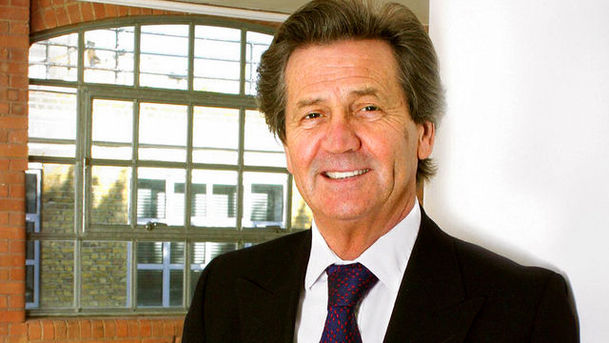
Melvyn Bragg and guests discuss the history of ideas

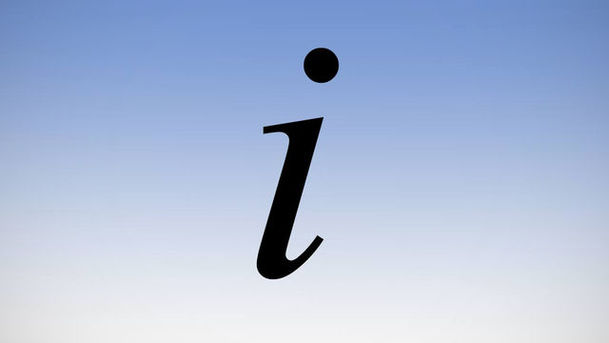
In Our Time - 23/09/2010
Melvyn Bragg and his guests discuss imaginary numbers - important mathematical phenomena which provide us with useful tools for understanding the world.
Details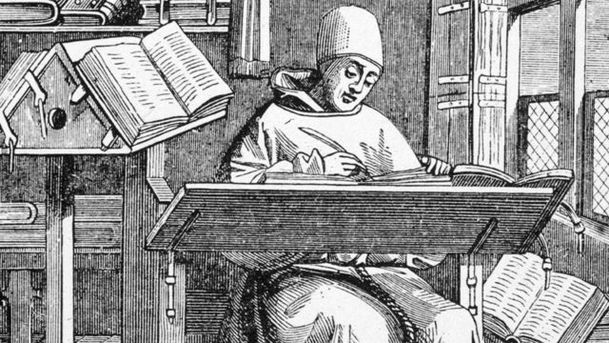
In Our Time - 25/11/2010
Melvyn Bragg and his guests discuss the history of metaphor - the device of using one thing to describe another.
Details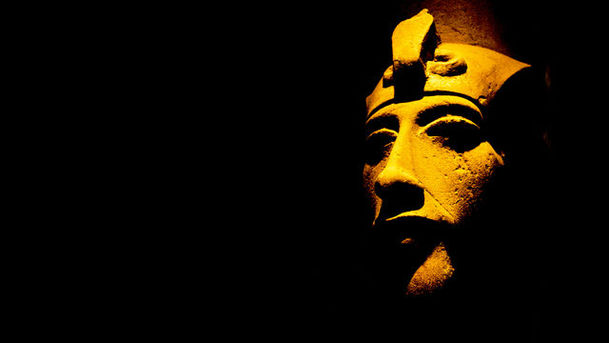
In Our Time - Akhenaten
Melvyn Bragg and guests Elizabeth Frood, Richard Parkinson and Kate Spence discuss Akhenaten, the ruler who brought revolutionary change to ancient Egypt.
Details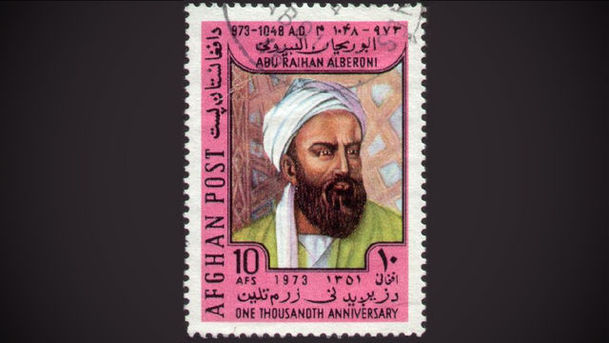
In Our Time - al-Biruni
Melvyn Bragg and guests discuss the Central Asian polymath al-Biruni and his 11th-century book India, one of the first scholarly works about the country.
Details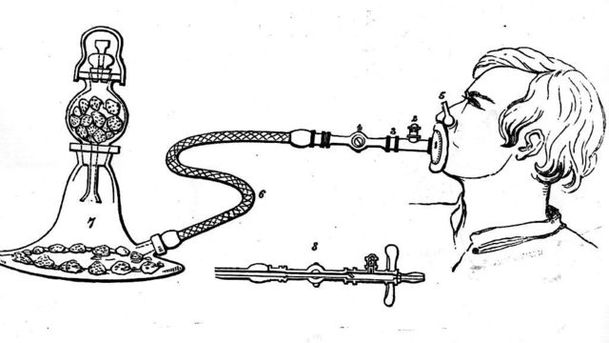
In Our Time - Anaesthetics
Melvyn Bragg and guests discuss the history of anaesthetics, from laughing gas in the 1790s to the discovery of “blessed chloroformâ€.
Details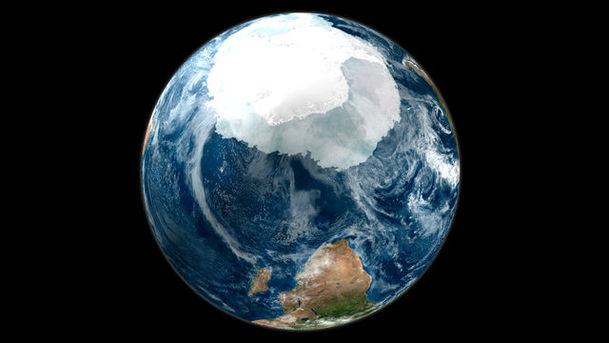
In Our Time - Antarctica
Melvyn Bragg and guests discuss the history of Antarctica: its geology and physical geography and the story of human exploration of the continent.
Details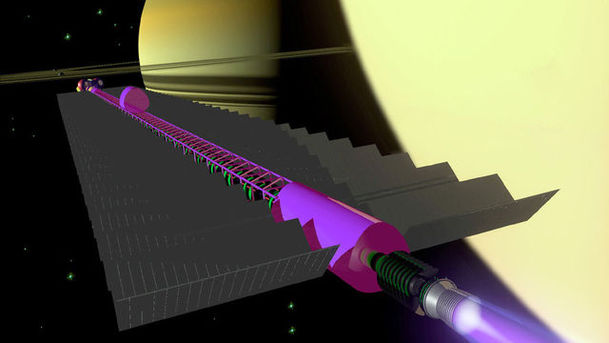
In Our Time - Antimatter
Melvyn Bragg discusses theories of Antimatter in particle physics and cosmology and finds out why there isn’t more of it in the universe.
Details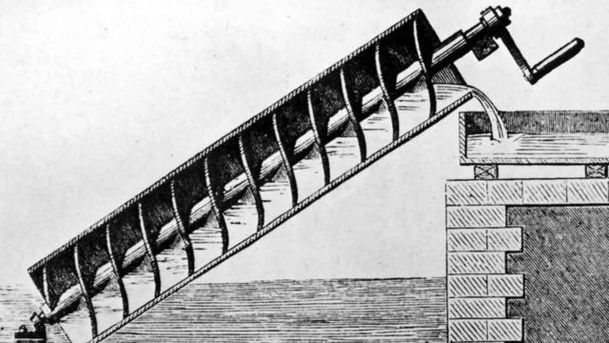
In Our Time - Archimedes
Melvyn Bragg and guests discuss the Greek mathematician Archimedes, brilliant with numbers and unexpectedly good at defensive siege warfare.
Details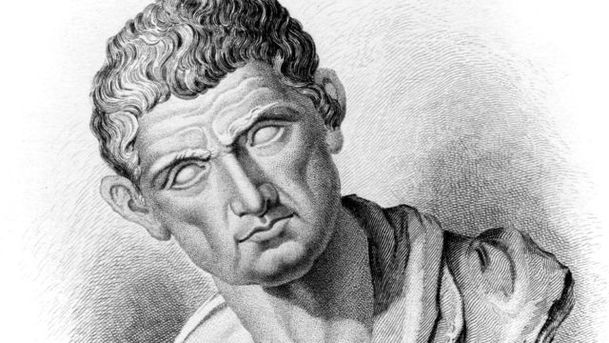
In Our Time - Aristotle's Poetics
Melvyn Bragg and guests discuss Aristotle's Poetics, the first and arguably most influential work of literary theory in history.
Details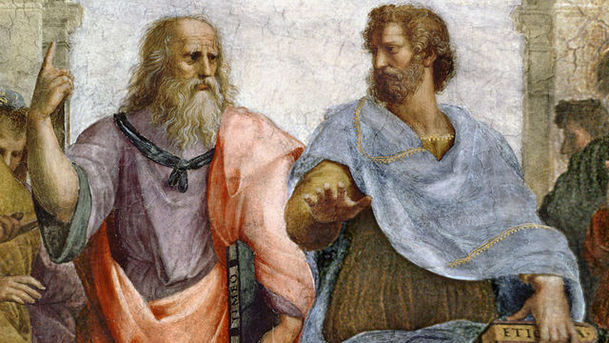
In Our Time - Aristotle's Politics
Melvyn Bragg and guests discuss one of the most important works of political philosophy ever written - Aristotle’s ‘Politics.
Details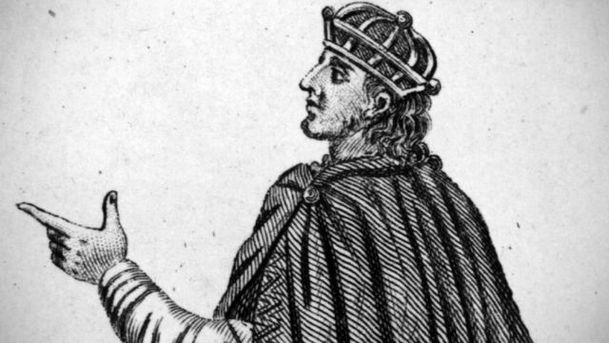
In Our Time - Athelstan
Melvyn Bragg and guests discuss the reign of King Athelstan, whose military exploits united much of England, Scotland and Wales under one ruler for the first time.
Details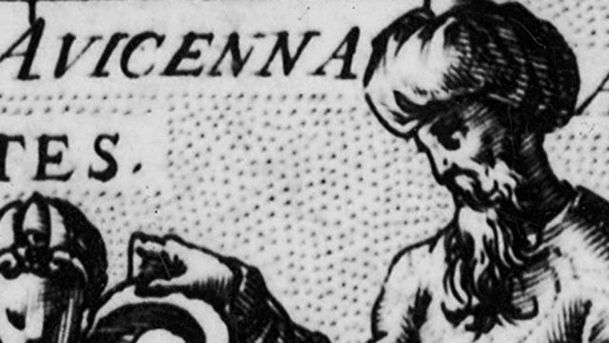
In Our Time - Avicenna
Melvyn Bragg and guests discuss Avicenna, among the most important philosophers in the history of Islam.
Details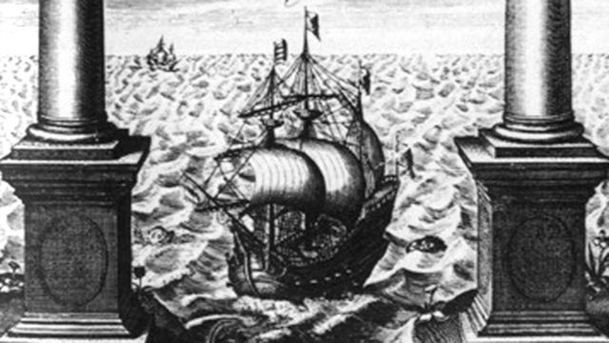
In Our Time - Baconian Science
Melvyn Bragg and guests Patricia Fara, Stephen Pumfrey and Rhodri Lewis discuss the Jacobean lawyer, political fixer and alleged founder of modern science Francis Bacon.
Details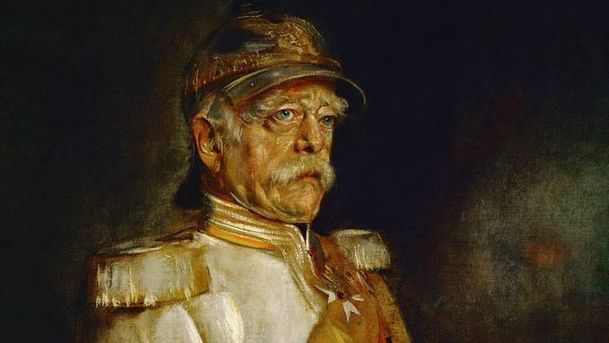
In Our Time - Bismarck
Melvyn Bragg and guests discuss the original Iron Chancellor, Otto Von Bismarck, one of 19th Century Europe’s most influential statesmen and the founder of modern Germany.
Details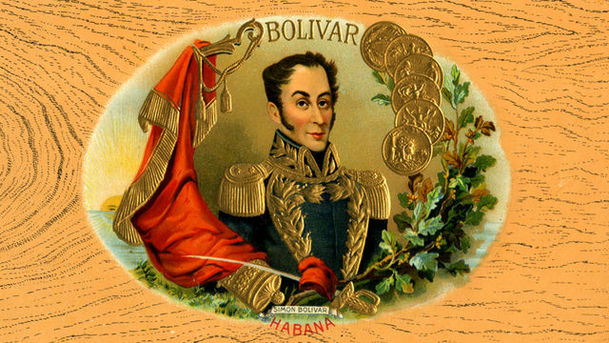
In Our Time - Bolivar
Melvyn Bragg and guests discuss the life and times of Simon Bolivar, hero of the revolutionary wars that liberated Spanish America from Spain.
Details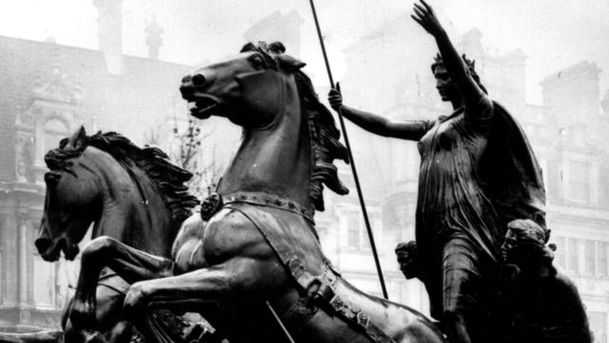
In Our Time - Boudica
Melvyn Bragg and guests Miranda Aldhouse-Green, Juliette Wood and Richard Hingley discuss the life and mythologisation of Boudica.
Details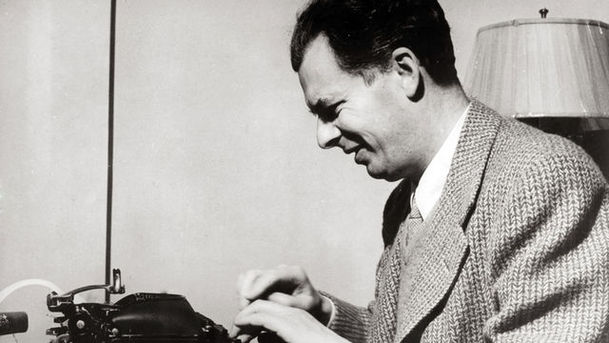
In Our Time - Brave New World
Melvyn Bragg and guests discuss Aldous Huxley's dystopian 1932 novel Brave New World and its vision of a future of test tube babies, free love and round-the-clock surveillance.
Details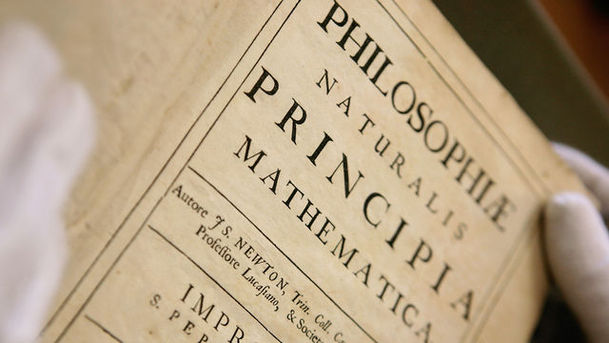
In Our Time - Calculus
Melvyn Bragg and guests Patricia Fara, Simon Schaffer and Jackie Stedall discuss the dispute between Sir Isaac Newton and Gottfried Leibniz over who invented calculus.
Details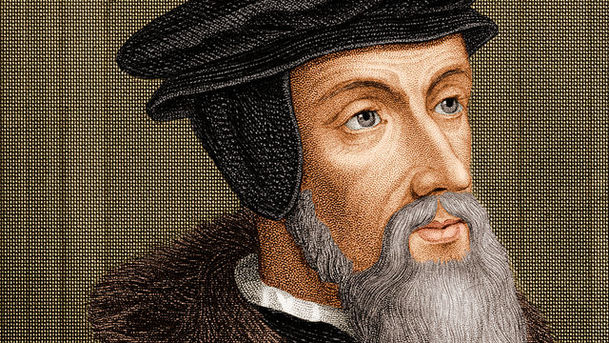
In Our Time - Calvinism
Melvyn Bragg and guests Justin Champion, Susan Hardman Moore and Diarmaid MacCulloch explore the ideas of John Calvin and their impact.
Details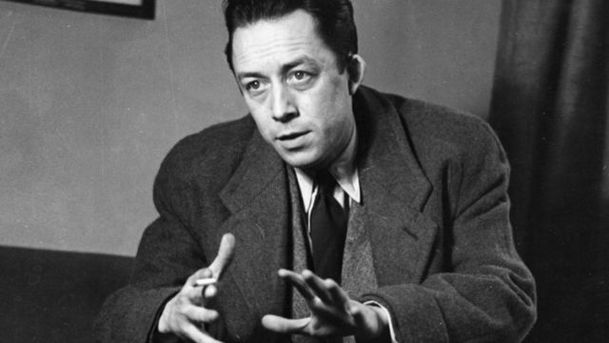
In Our Time - Camus
Melvyn Bragg discusses the Nobel Prize winning Algerian-French writer and existentialist philosopher Albert Camus.
Details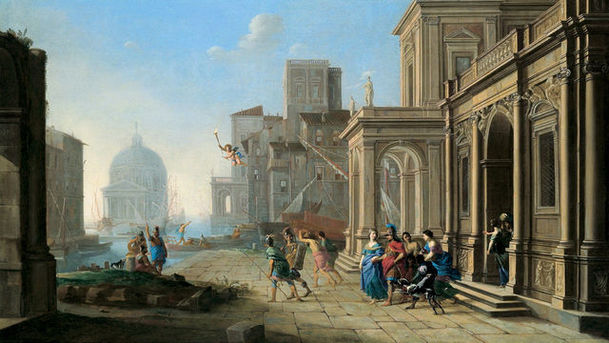
In Our Time - Carthage's Destruction
Melvyn Bragg and guests discuss the complete destruction of Carthage by Rome, a pivotal moment in world history.
Details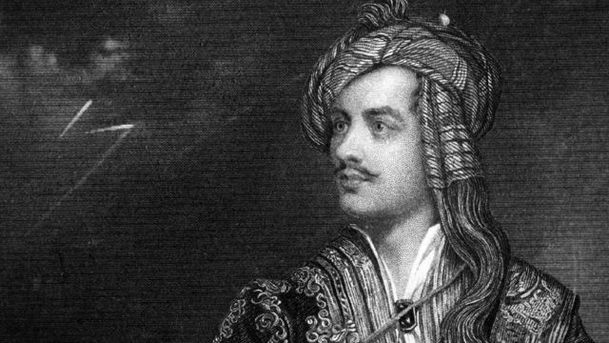
In Our Time - Childe Harold's Pilgrimage
Melvyn Bragg and his guests discuss Childe Harold's Pilgrimage, the poem that made Byron famous.
Details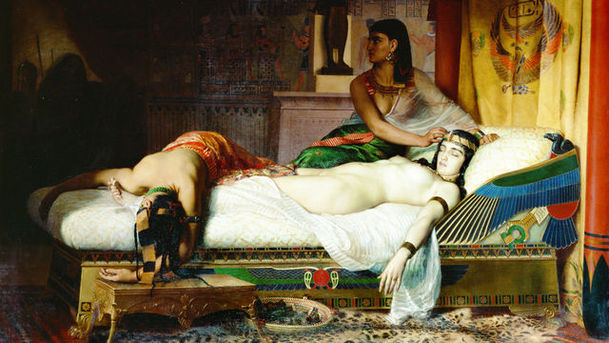
In Our Time - Cleopatra
Melvyn Bragg and his guests discuss Cleopatra, the Egyptian pharaoh whose charisma, intelligence and beauty made her one of the most celebrated rulers of the ancient world.
Details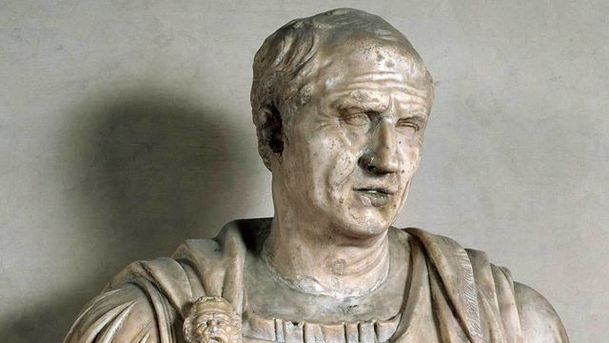
In Our Time - Common Sense Philosophy
Melvyn Bragg and guests discuss 18th century common sense philosophy which involves the most profound questions about human knowledge we are capable of asking.
Details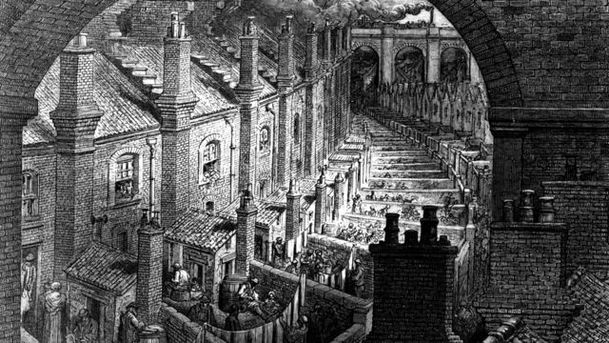
In Our Time - Consequences of the Industrial Revolution
Melvyn Bragg and his guests discuss the far-reaching consequences of the Industrial Revolution, which brought widespread social and intellectual change to Britain.
Details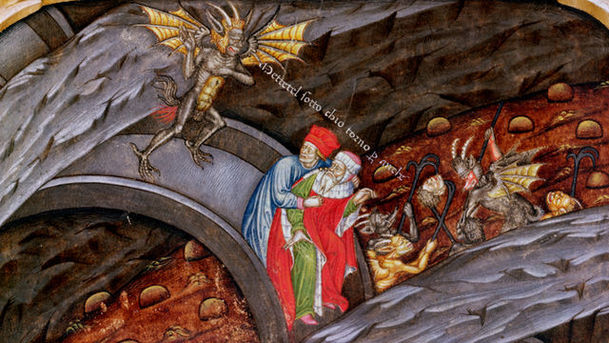
In Our Time - Dante's Inferno
Melvyn Bragg discusses Dante’s ‘Inferno’ - a journey through the nine circles of Hell. Dante was a medieval Italian poet and the Inferno, his greatest work, is a masterpiece of world literature.
Details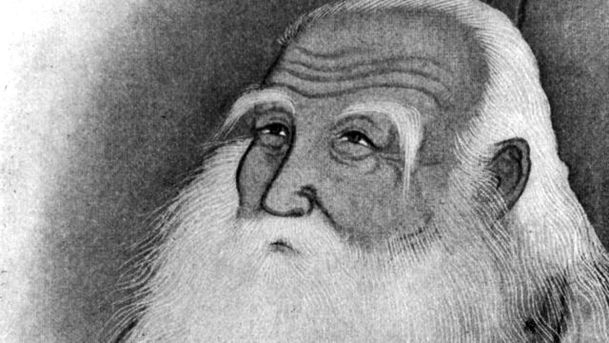
In Our Time - Daoism
Melvyn Bragg and his guests discuss Daoism, a Chinese belief system encompassing both religion and philosophy.
Details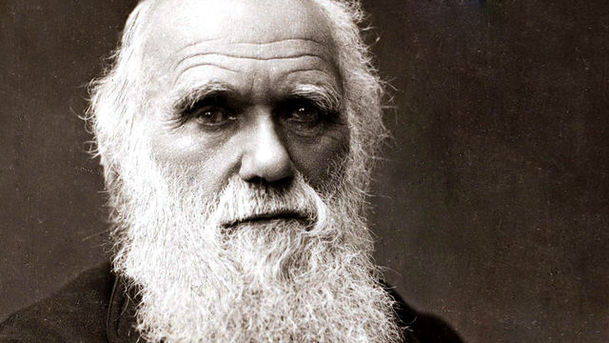
In Our Time - Darwin: In Our Time
To celebrate the 200th anniversary of the birth of Charles Darwin and the 150th anniversary of the publication of On the Origin of Species, Melvyn Bragg presents a series about Darwin's life and work
Details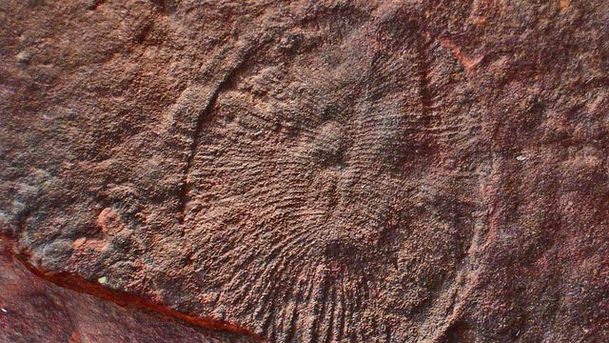
In Our Time - Ediacara Biota
Melvyn Bragg and guests discuss the Ediacara Biota: the Precambrian beings that some consider the first complex multicellular life forms.
Details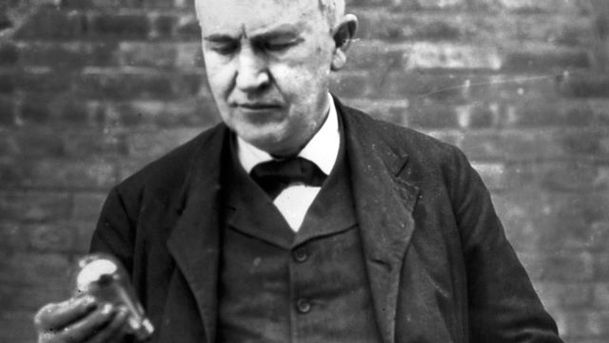
In Our Time - Edison
Melvyn Bragg and his guests discuss the work of Thomas Edison, one of the great inventors and cultural figures of modern America.
Details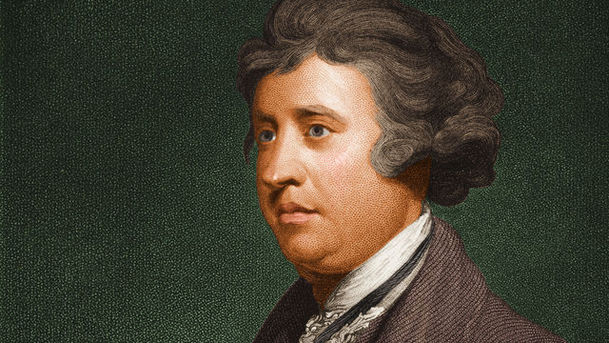
In Our Time - Edmund Burke
Melvyn Bragg and guests discuss the work of the philosopher, politician and writer Edmund Burke, whose views on revolution in America and France were hugely influential.
Details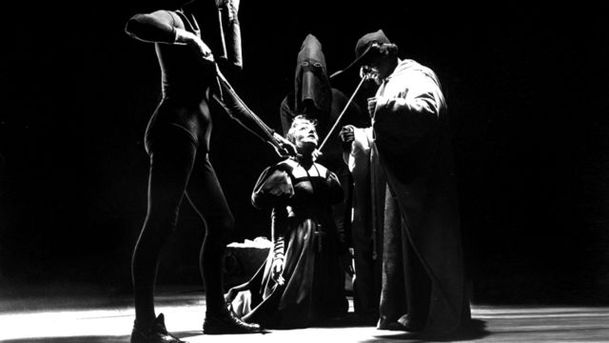
In Our Time - Elizabethan Revenge
Melvyn Bragg and guests discuss why revenge tragedy was so popular with Elizabethan theatre goers, from Thomas Kyd's The Spanish Tragedy to Shakespeare's Hamlet.
Details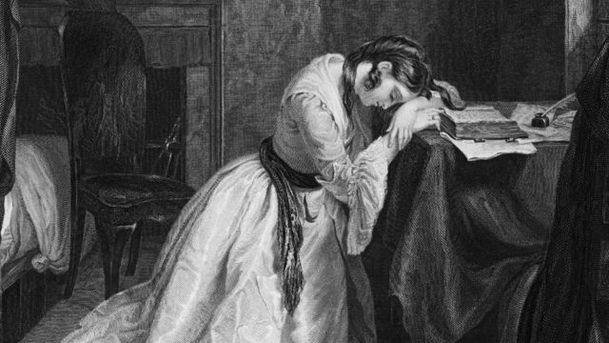
In Our Time - Epistolary Literature
Melvyn Bragg discusses the 18th Century fashion for epistolary literature including Aphra Benn, Samuel Richardson and Jane Austen.
Details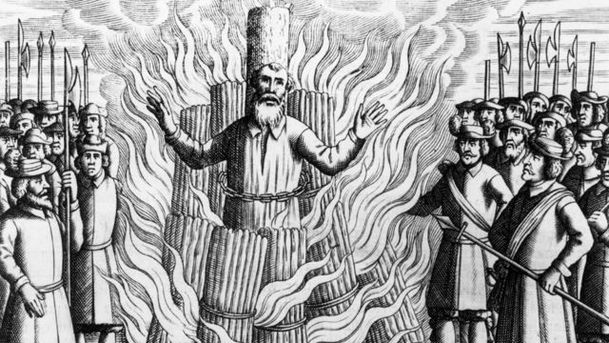
In Our Time - Foxe's Book of Martyrs
Melvyn Bragg and guests discuss Foxe's Book of Martyrs, the celebrated 16th-century account of the suffering of Protestant martyrs.
Details
In Our Time - Genetic Mutation
Melvyn Bragg discusses mutation in genetics and evolution, unlocking the secrets of life and death.
Details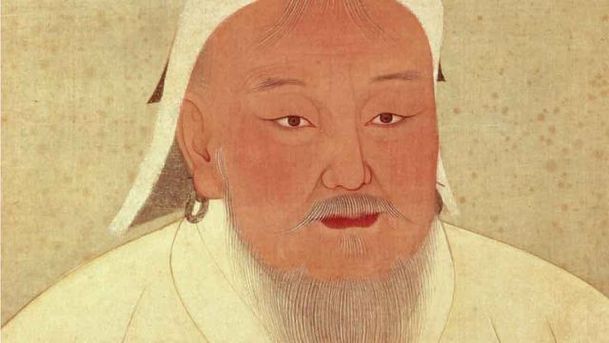
In Our Time - Genghis Khan
Melvyn Bragg discusses Genghis Khan and the Mongol Empire, one of the largest contiguous empires the world has ever seen.
Details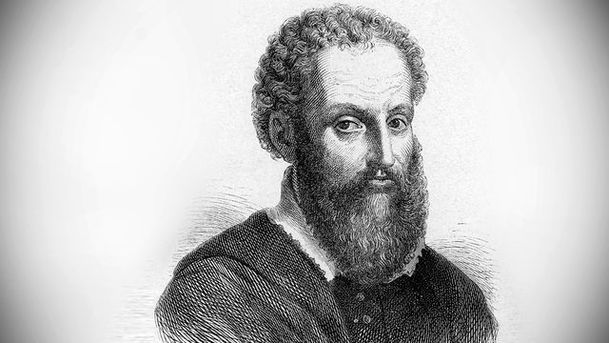
In Our Time - Giorgio Vasari's Lives of the Artists
Melvyn Bragg and guests discuss Lives of the Artists, the great biographer Giorgio Vasari's study of Renaissance painters, sculptors and architects.
Details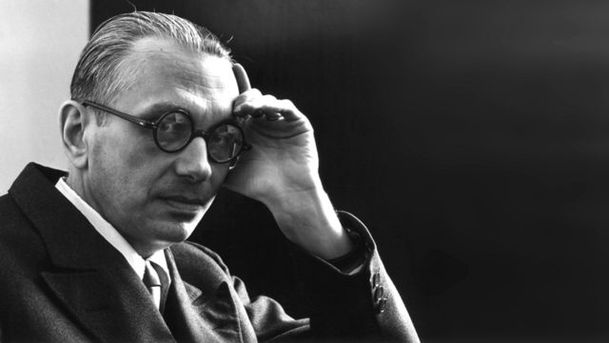
In Our Time - Godel's Incompleteness Theorems
Melvyn Bragg and guests discuss the mathematician Kurt Godel and his work at the very limits of maths.
Details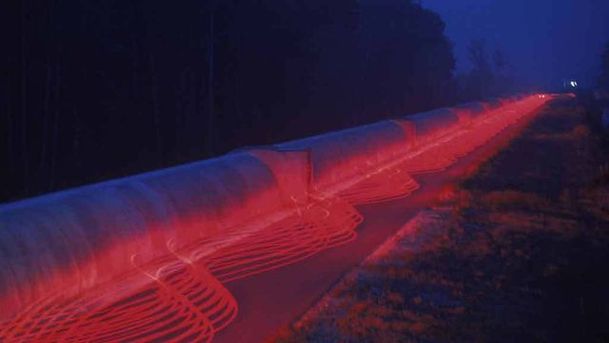
In Our Time - Gravitational Waves
Melvyn Bragg and guests discuss Gravitational Waves, mysterious phenomena that ripple the fabric of space-time.
Details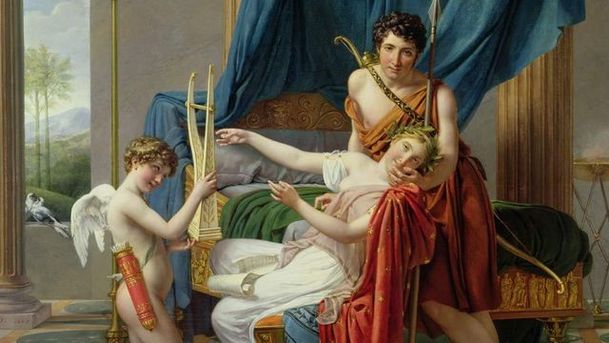
In Our Time - Greek and Roman Love Poetry
Melvyn Bragg and guests discuss Greek and Roman love poetry, from the Greek poet Sappho and her erotic descriptions of romance to the love-hate poems of the Roman writer Catullus.
Details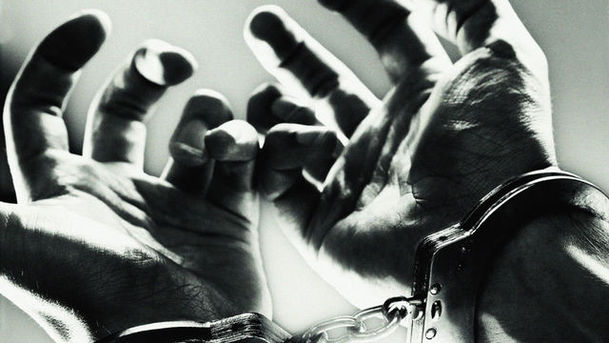
In Our Time - Guilt
Melvyn Bragg discusses the moral conscience and take a long hard look at the idea of guilt.
Details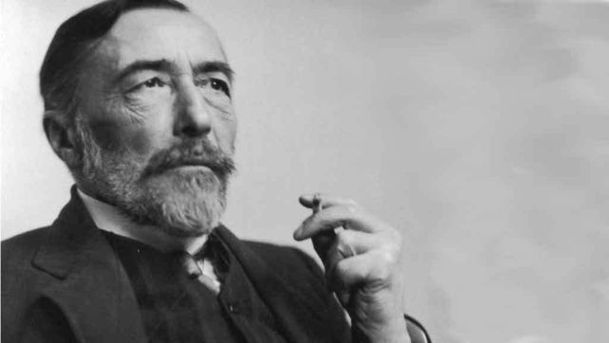
In Our Time - Heart of Darkness
Melvyn Bragg discusses Joseph Conrad's Novel, Heart of Darkness, a critique of colonialism at the turn of the century
Details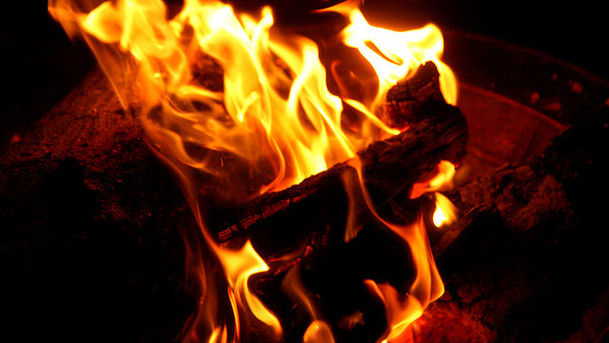
In Our Time - Heat
Melvyn Bragg discusses the history of scientific ideas about heat from fire to thermodynamics.
Details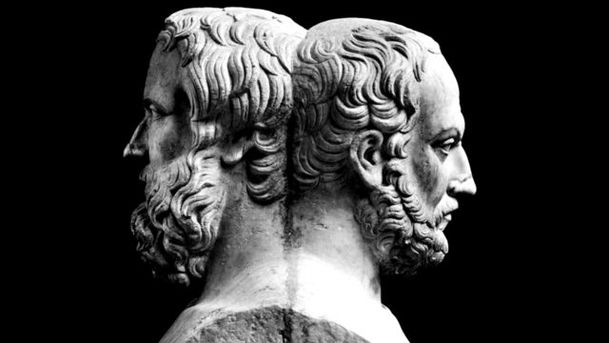
In Our Time - History of History
Melvyn Bragg and guests discuss how the writing of history has changed over time, from ancient epics to medieval hagiographies and modern deconstructions.
Details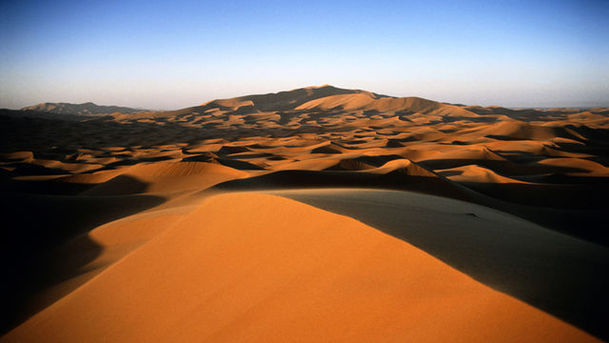
In Our Time - Ibn Khaldun
Melvyn Bragg and guests Robert Hoyland, Robert Irwin and Hugh Kennedy discuss the life and ideas of the 14th-century Arab philosopher of history Ibn Khaldun.
Details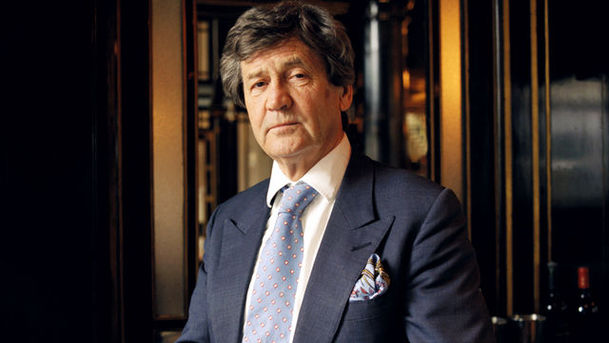
In Our Time - In Our Time: The Royal Society and British Science
As part of the BBC's year of science programming, Melvyn Bragg looks at the history of the oldest scientific learned society of them all: the Royal Society
Details
In Our Time - Jorge Luis Borges
Melvyn Bragg and guests discuss the life and work of the Argentinian master of the short story, Jorge Luis Borges.
Details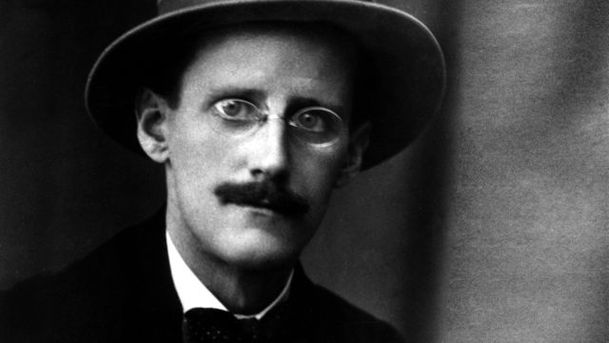
In Our Time - Joyce's A Portrait of the Artist as a Young Man
Melvyn Bragg and guests discuss A Portrait of the Artist as a Young Man, James Joyce's groundbreaking 1916 novel about growing up in Catholic Ireland.
Details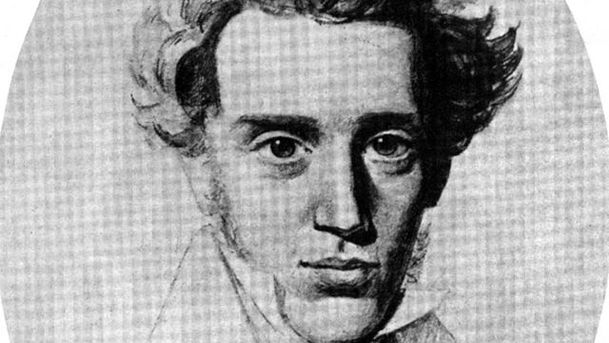
In Our Time - Kierkegaard
Melvyn Bragg and guests discuss the rich and radical ideas of Soren Kierkegaard, often called the father of Existentialism.
Details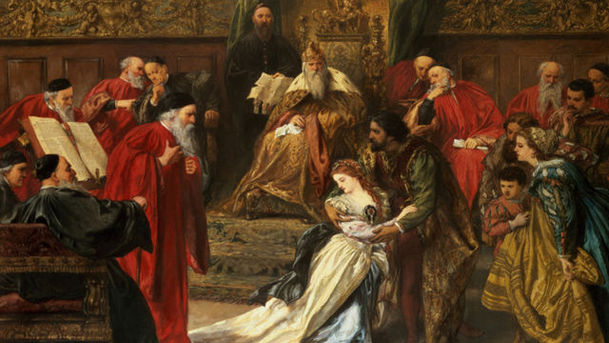
In Our Time - Lear
Melvyn Bragg discusses Shakespeare’s King Lear, a shocking and violent vision of a broken family in a godless world.
Details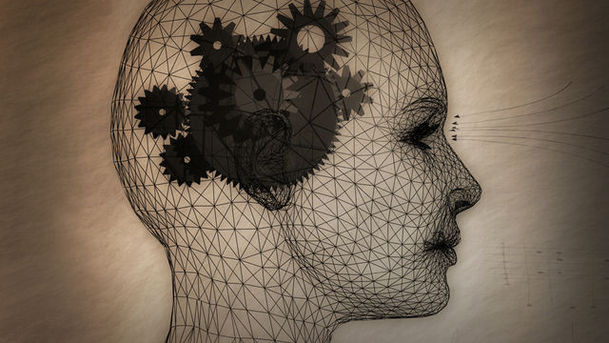
In Our Time - Logic
Melvyn Bragg and his guests discuss the history of logic, the study of reasoning and argument.
Details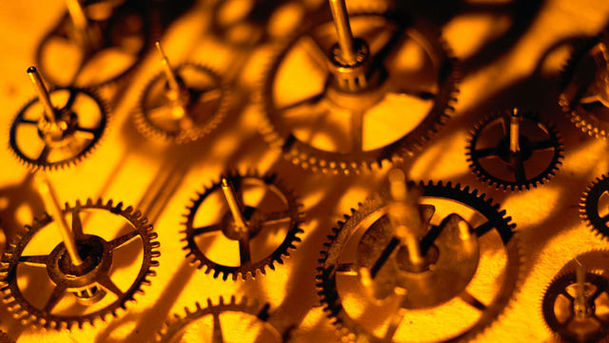
In Our Time - Logical Positivism
Melvyn Bragg and guests including Barry Smith discuss Logical Positivism, the radical philosophy of the Vienna Circle.
Details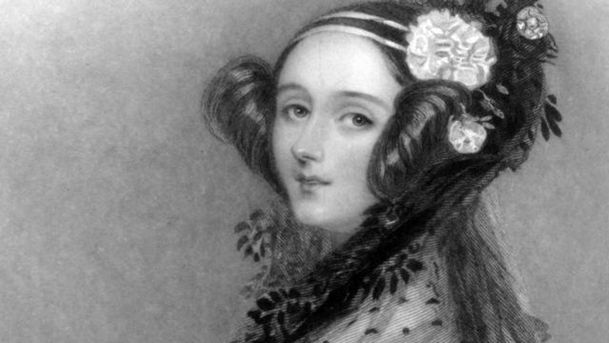
In Our Time - Lovelace
Melvyn Bragg and guests discuss the 19th century mathematician and hard living daughter of Lord Byron, Ada Lovelace.
Details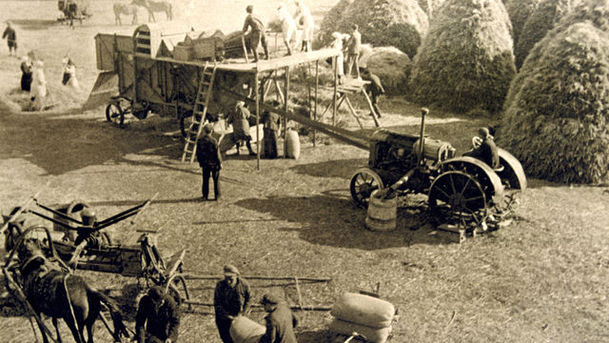
In Our Time - Lysenkoism
Melvyn Bragg discusses the dark world of science under Joseph Stalin through the career of his chief geneticist Trofim Lysenko.
Details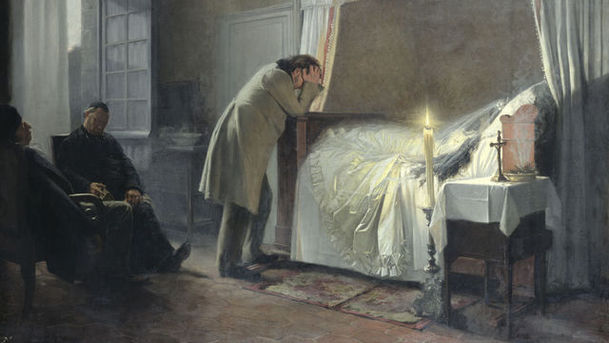
In Our Time - Madame Bovary
Melvyn Bragg and guests discuss the literary sensation caused by the trial for indecency of Gustave Flaubert's novel Madame Bovary.
Details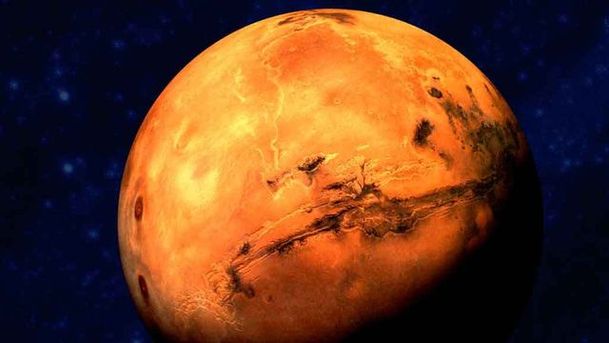
In Our Time - Mars
Melvyn Bragg and guests discuss the planet Mars. Named after the Roman god of war, Mars has been a source of continual fascination.
Details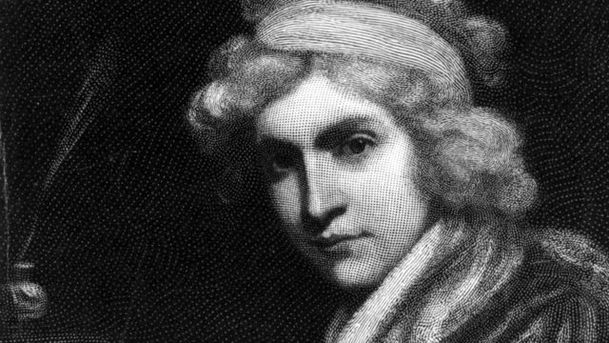
In Our Time - Mary Wollstonecraft
Melvyn Bragg and guests John Mullan, Karen O'Brien and Barbara Taylor discuss the life and ideas of the pioneering British Enlightenment thinker Mary Wollstonecraft.
Details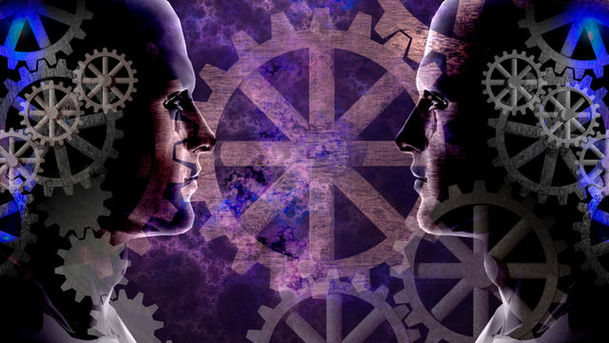
In Our Time - Materialism
Melvyn Bragg and guests discuss Materialism– the philosophical idea that matter constitutes all that exists.
Details
In Our Time - Mathematics' Unintended Consequences
Melvyn Bragg and guests explore the unintended consequences of mathematical discoveries, from alternating current to predicting the path of asteroids.
Details
In Our Time - Microbiology
Melvyn Bragg and guests discuss the history of microbiology and how microscopic creatures dominate life on earth.
Details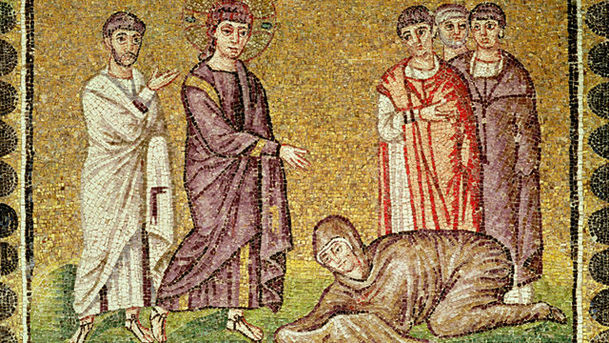
In Our Time - Miracles
Melvyn Bragg discusses the history of miracles, the subject of fierce theological debate, intense popular piety and serious medical study.
Details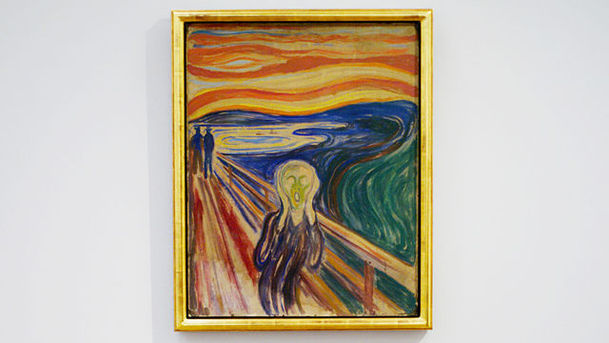
In Our Time - Munch and The Scream
Melvyn Bragg and guests David Jackson, Dorothy Rowe and Alastair Wright discuss the work of the Norwegian artist Edvard Munch, focusing on his painting The Scream.
Details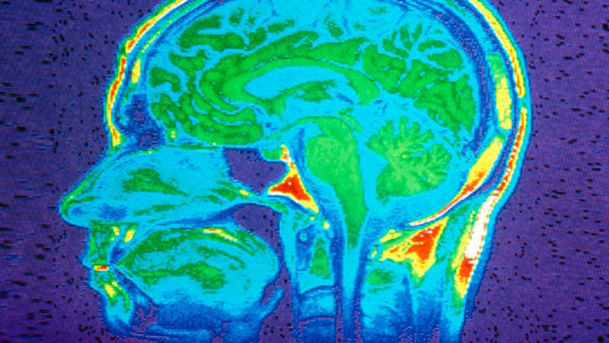
In Our Time - Neuroscience
Melvyn Bragg and guests David Papineau, Martin Conway and Gemma Calvert discuss recent developments in neuroscience and examine the relationship between the mind and the brain.
Details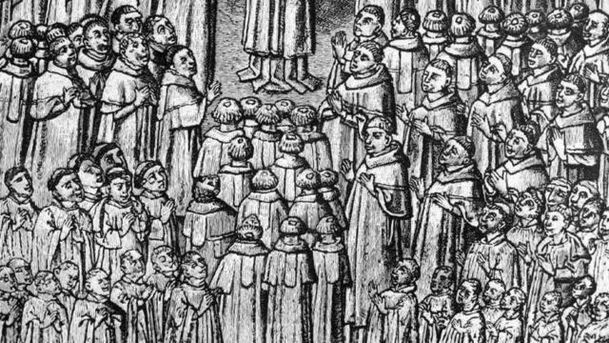
In Our Time - Ockham's Razor
Melvyn Bragg and guests discuss the philosophical idea of Ockham’s Razor and the medieval philosopher who gave his name to it, William of Ockham.
Details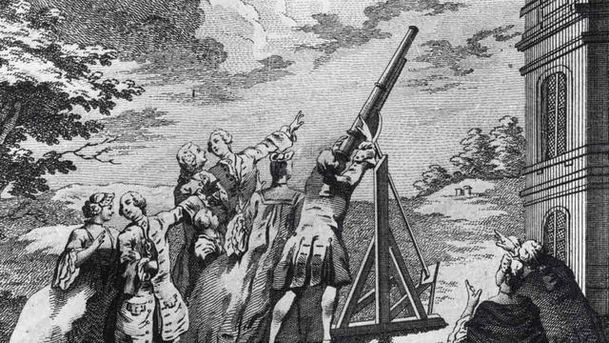
In Our Time - Optics
Melvyn Bragg and guests discuss the history of optics – from star gazing with a telescope to examining lice under a microscope
Details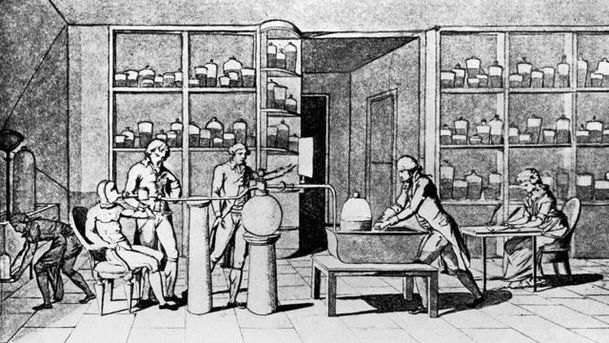
In Our Time - Oxygen
Melvyn Bragg discusses the discovery of Oxygen by Joseph Priestley and Antoine Lavoisier and the Anglo-French feud that accompanied it.
Details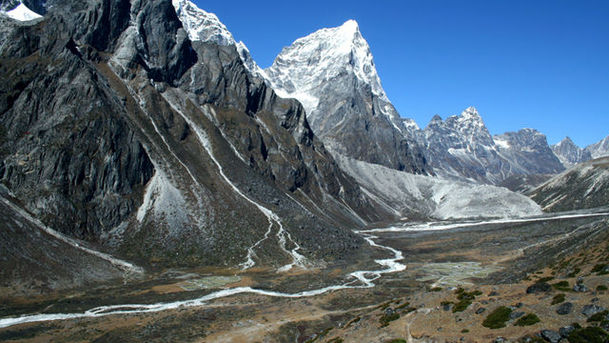
In Our Time - Plate Tectonics
Melvyn Bragg and guests discuss how the geological theory of plate tectonics revolutionised our understanding of the planet on which we live
Details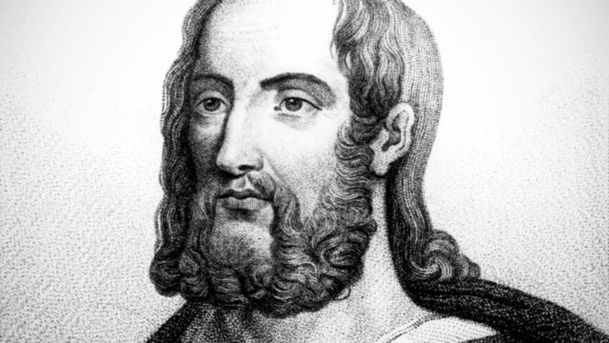
In Our Time - Pliny's Natural History
Melvyn Bragg and guests discuss Pliny the Elder's Natural History, a comprehensive and influential encyclopedia of the natural sciences written in the first century AD.
Details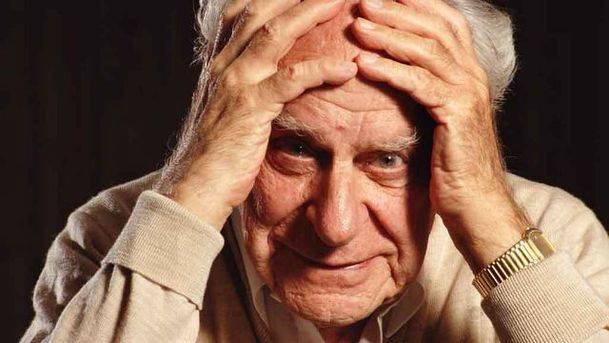
In Our Time - Popper
Melvyn Bragg discusses the philosopher Karl Popper, author of The Open Society and a seminal thinker about science.
Details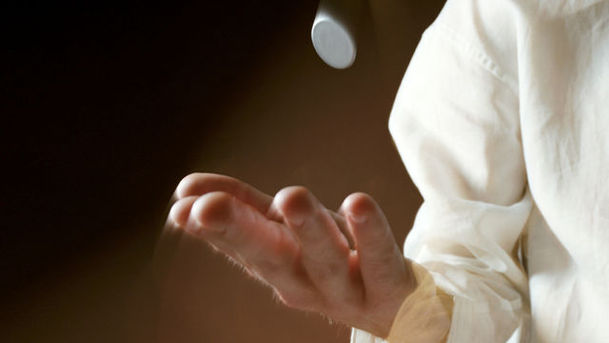
In Our Time - Probability
Melvyn Bragg discusses the strange mathematics of probability from renaissance gambling to chaos theory.
Details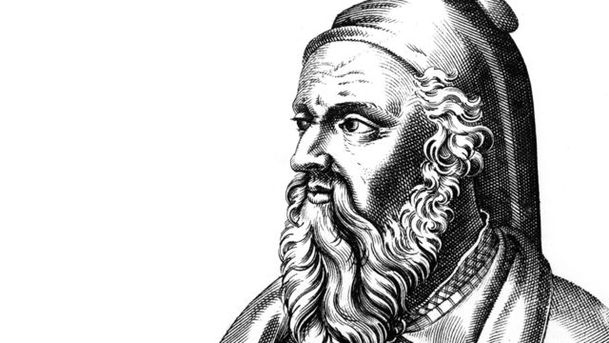
In Our Time - Pythagoras
Melvyn Bragg and guests discuss the ideas and influence of the Greek mathematician Pythagoras and his followers, the Pythagoreans.
Details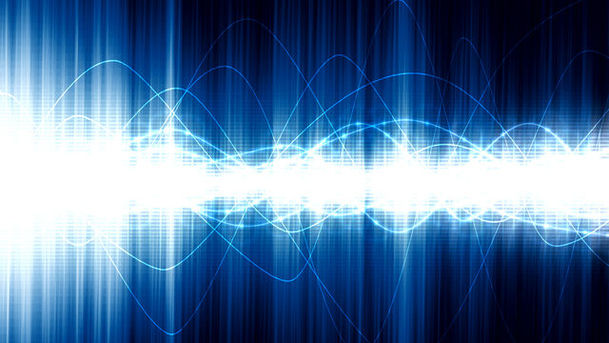
In Our Time - Radiation
Melvyn Bragg and guests discuss the history of the discovery of radiation, from the idea that light consisted of waves, through electromagnetism to the naming of gamma rays.
Details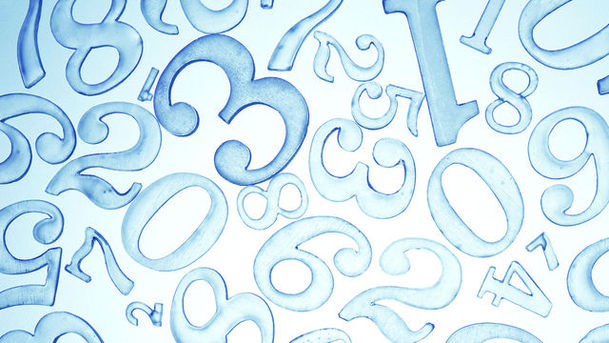
In Our Time - Random and Pseudorandom
Melvyn Bragg and his guests discuss mathematical randomness and pseudorandomness, ideas important to cryptography, statistics and weather forecasting.
Details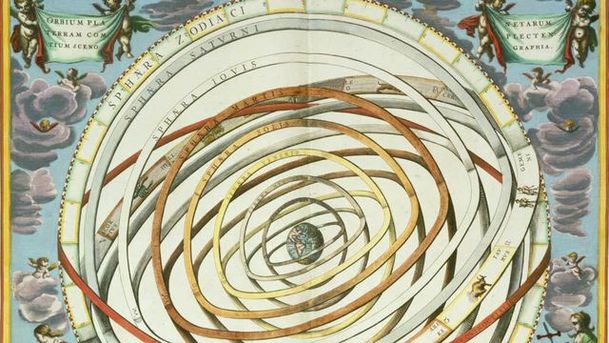
In Our Time - Renaissance Astrology
Melvyn Bragg and guests discuss Renaissance Astrology, an essential part of Renaissance thinking on magic, music, medicine, politics, cosmology, destiny and much more.
Details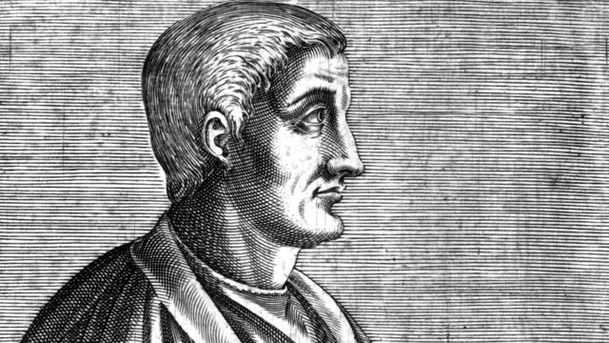
In Our Time - Roman Satire
Melvyn Bragg and guests Mary Beard, Denis Feeney and Duncan Kennedy discuss Roman satire.
Details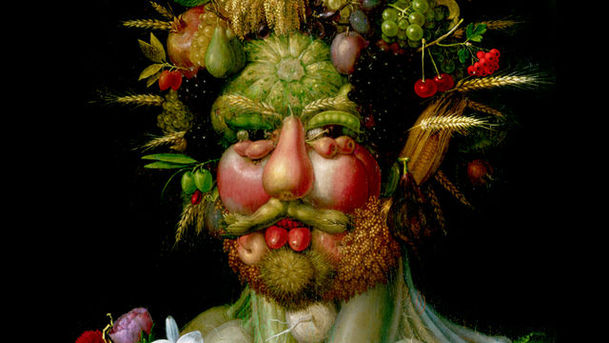
In Our Time - Rudolph II
Melvyn Bragg and guests discuss the coterie of brilliant thinkers gathered by Holy Roman Emperor Rudolph II at his court in Prague.
Details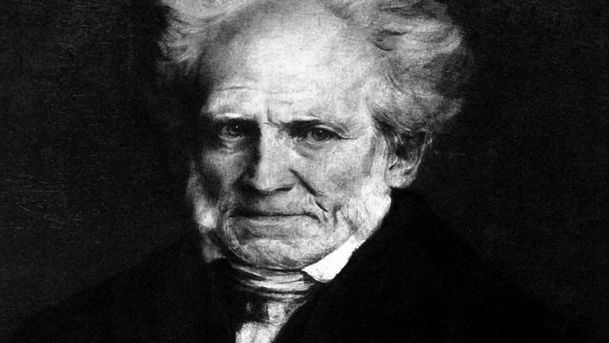
In Our Time - Schopenhauer
Melvyn Bragg and guests discuss the pessimistic philosophy of Arthur Schopenhauer and his extraordinary influence.
Details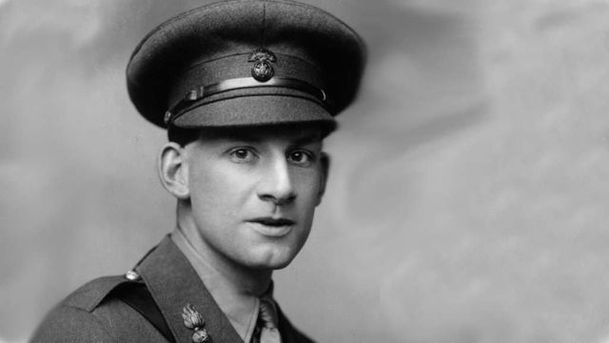
In Our Time - Siegfried Sassoon
Melvyn Bragg and guests discuss the war poet Siegfried Sassoon; a homosexual war hero who became a bitter opponent of the First World War and a devout Catholic.
Details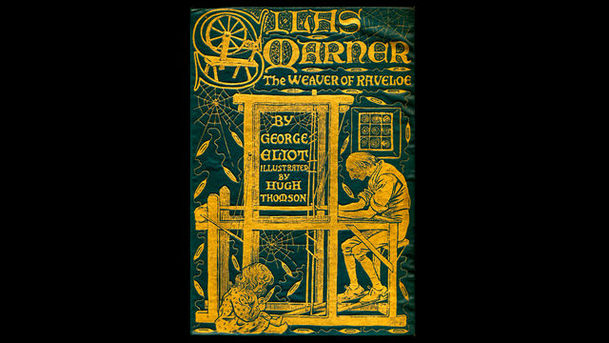
In Our Time - Silas Marner
Melvyn Bragg and guests Rosemary Ashton, Dinah Birch and Valentine Cunningham discuss George Eliot's 1861 novel Silas Marner.
Details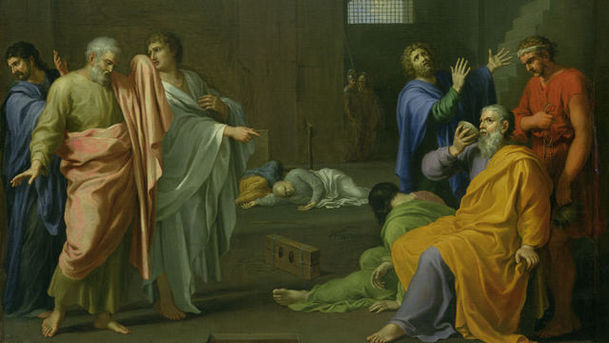
In Our Time - Socrates
Melvyn Bragg and guests discuss the iconic Greek philosopher Socrates. He is the founder of Western philosophy, he was funny, irritating and rude but left not a single word in his own hand.
Details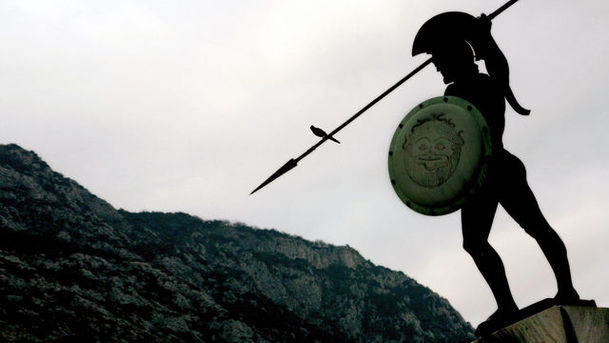
In Our Time - Sparta
Melvyn Bragg and guests Paul Cartledge, Edith Hall and Angie Hobbs discuss Sparta, the militaristic Ancient Greek city-state, and the political ideas it spawned.
Details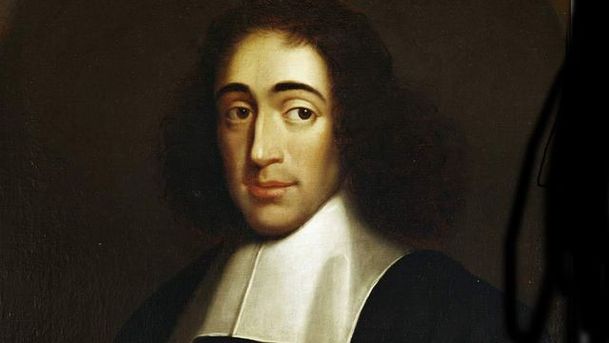
In Our Time - Spinoza
Melvyn Bragg discusses the philosopher Spinoza whose profound and complex ideas about God had him celebrated as an atheist in the 18th century.
Details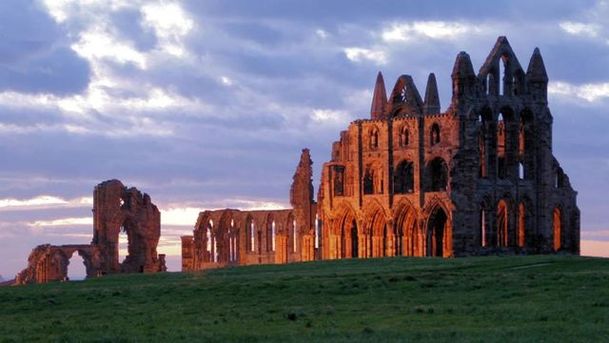
In Our Time - St Hilda
Melvyn Bragg and guests discuss St Hilda, who led a large and influential network of monasteries in 7th century Britain.
Details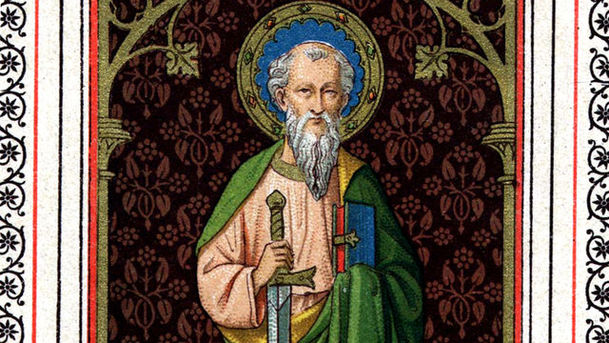
In Our Time - St Paul
Melvyn Bragg and guests Helen Bond, John Haldane and John Barclay discuss the influence of St Paul on the early Christian church and on Christian theology generally.
Details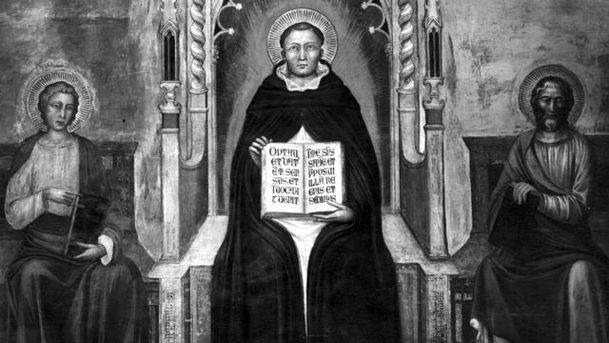
In Our Time - St Thomas Aquinas
Melvyn Bragg and guests discuss St Thomas Aquinas, the Catholic Church's foremost western philosopher and theologian.
Details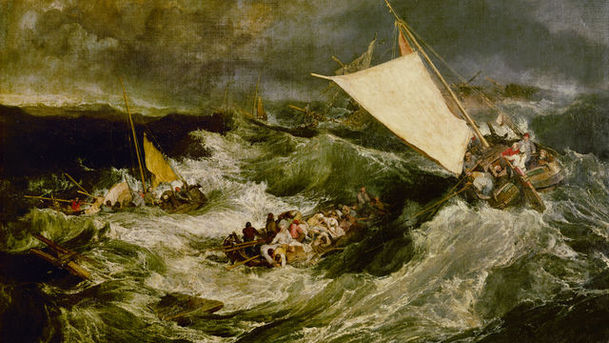
In Our Time - Sturm und Drang
Melvyn Bragg and his guests discuss the 18th-century German artistic movement known as Sturm und Drang, whose best-known exponents included Goethe and Schiller.
Details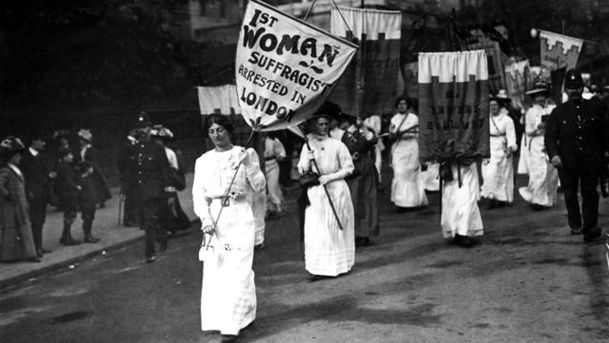
In Our Time - Suffragism
Melvyn Bragg and guests discuss suffragism, the movement for women's voting rights. Who championed it, who opposed it and how was universal female suffrage really achieved?
Details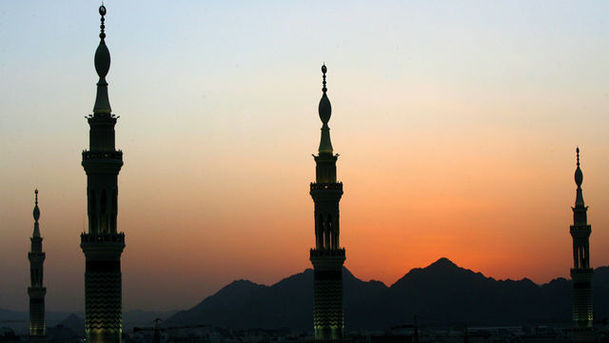
In Our Time - Sunni and Shia Islam
Melvyn Bragg and guests discuss the origins of the theological split between Sunni and Shi'ite Muslims.
Details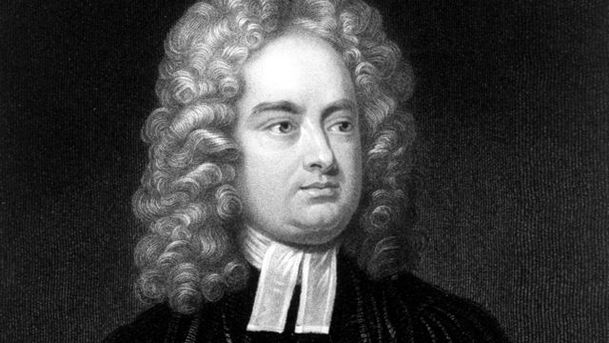
In Our Time - Swift's A Modest Proposal
Melvyn Bragg and guests discuss Jonathan Swift's satirical 1729 pamphlet A Modest Proposal, which reveals much about attitudes to the Irish and the poor in 18th-Century Britain.
Details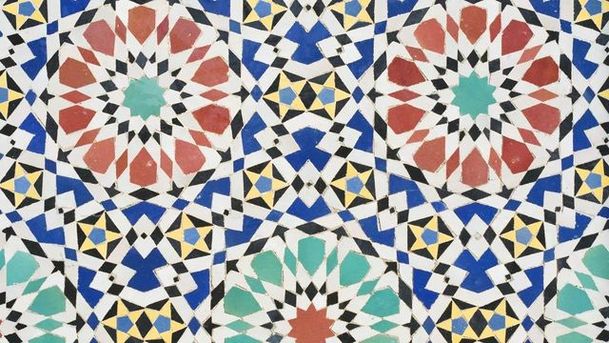
In Our Time - Symmetry
Melvyn Bragg discusses symmetry in art and nature. From snowflakes and butterflies to the music of Bach and the poems of Pushkin.
Details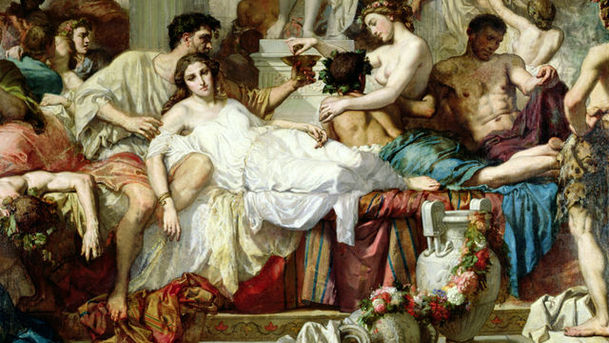
In Our Time - Tacitus and the Decadence of Rome
Melvyn Bragg and guests discuss the Roman historian Tacitus, whose portrayal of Roman decadence influences the way we see Rome today.
Details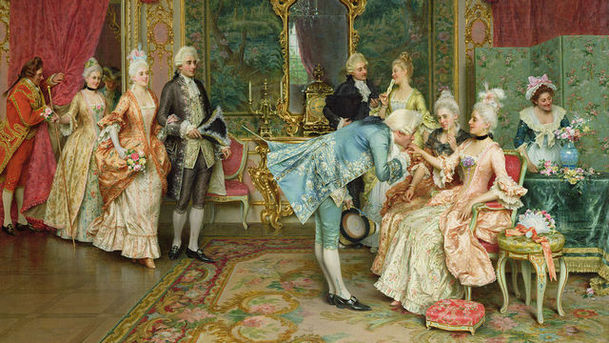
In Our Time - Taste
Melvyn Bragg and guests discuss the 18th century obsession with good and bad taste
Details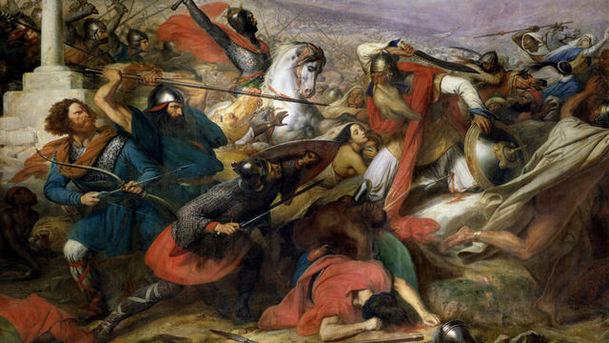
In Our Time - The Arab Conquests
Melvyn Bragg discusses the Arab conquests which transformed the Middle East, Persia, North Africa and Southern Europe by helping to spread the new religion of Islam.
Details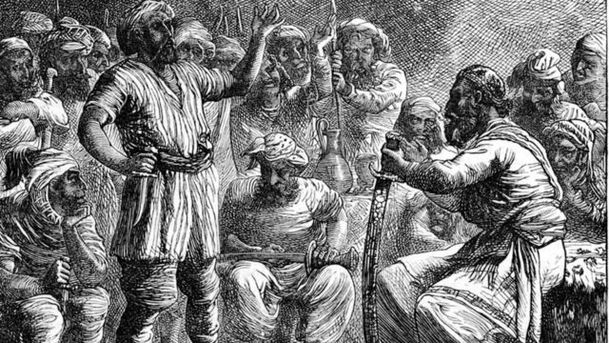
In Our Time - The Arabian Nights
Melvyn Bragg and guests discuss the Arabian Nights - an ever shifting sea of stories across Asia and Europe.
Details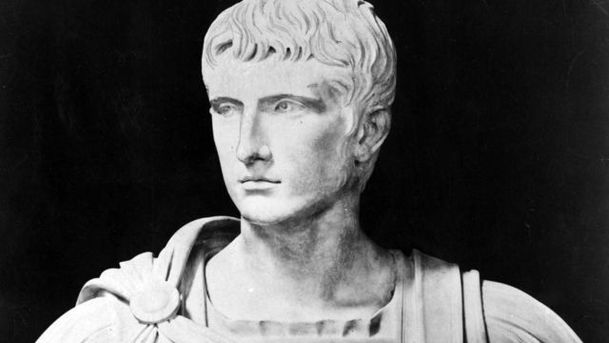
In Our Time - The Augustan Age
Melvyn Bragg and guests discuss the political regime and cultural influence of the Roman Emperor Augustus.
Details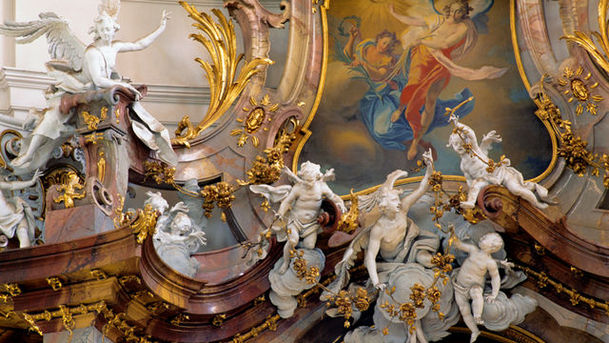
In Our Time - The Baroque Movement
Melvyn Bragg and guests discuss the culture of the Baroque, from Bach and Caavaggio to the Colonnades of St Peter’s.
Details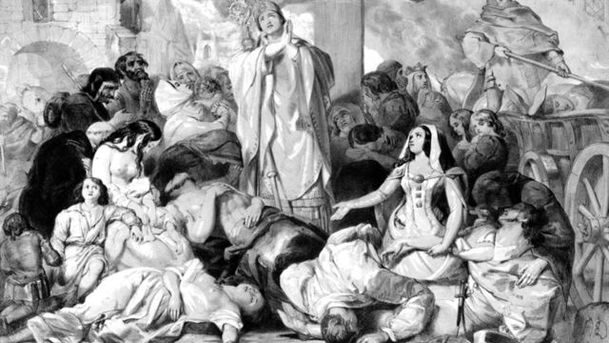
In Our Time - The Black Death
Melvyn Bragg and guests discuss the Black Death and the way medieval communities responded to it.
Details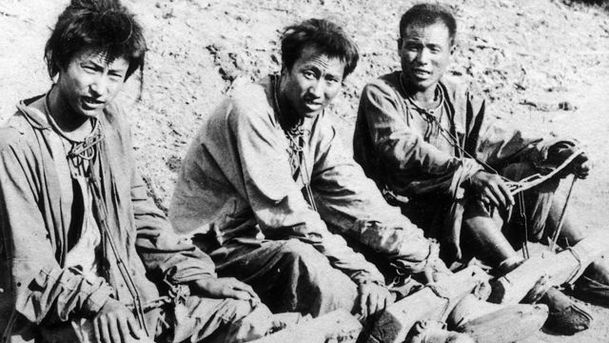
In Our Time - The Boxer Rebellion
Melvyn Bragg and guests discuss the Boxer Rebellion, when the Society of Righteous and Harmonious Fists purged China of foreign influences in the summer of 1900.
Details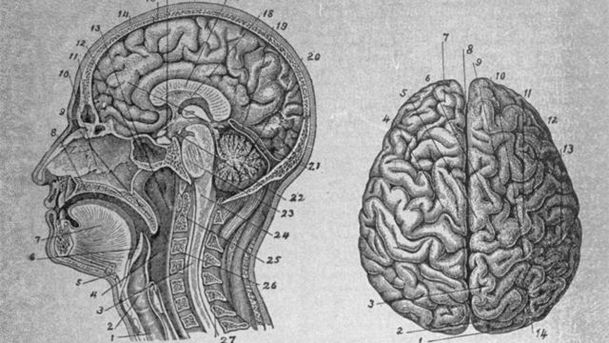
In Our Time - The Brain
Melvyn Bragg and guests discuss the history of cultural, medical, artistic and philosophical ideas about the human brain.
Details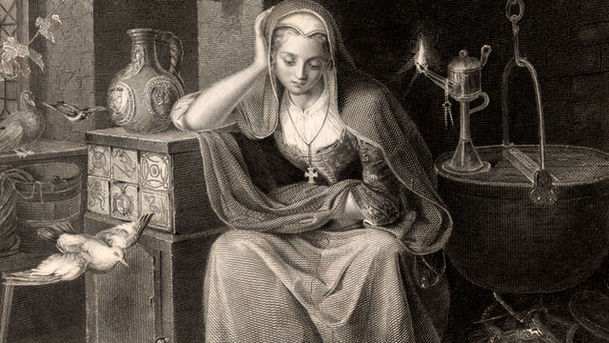
In Our Time - The Brothers Grimm
Melvyn Bragg and guests discuss the fairy tales collected by the Brothers Grimm and what they can tell us about the German imagination and 19th-Century romantic nationalism.
Details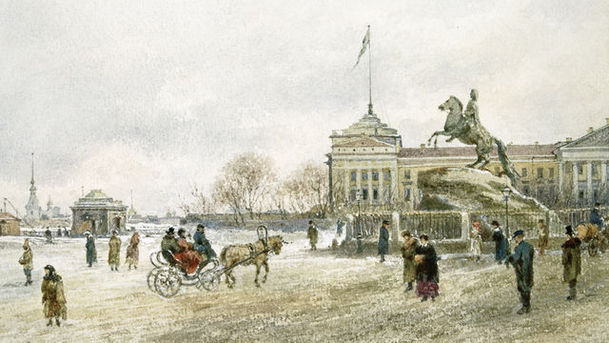
In Our Time - The Building of St Petersburg
Melvyn Bragg and guests discuss the building of St Petersburg, Peter the Great's showcase city for a modern, European Russia.
Details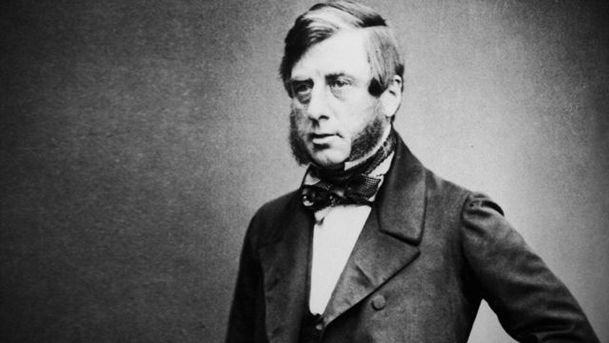
In Our Time - The Cavendish Family in Science
Melvyn Bragg and guests Jim Bennett, Simon Schaffer and Patricia Fara explore the scientific achievements of the Cavendish family, from the 17th to the 19th century.
Details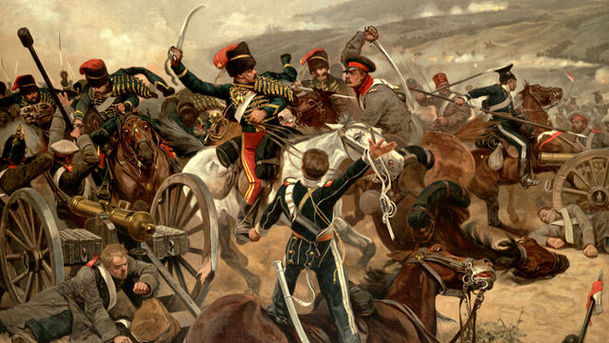
In Our Time - The Charge of the Light Brigade
Melvyn Bragg and guests discuss the Charge of the Light Brigade and its iconic status in the British historical imagination.
Details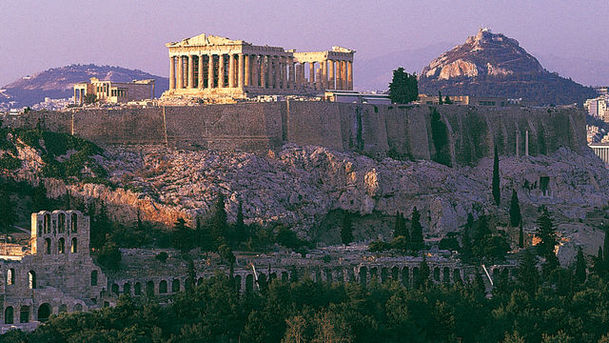
In Our Time - The City - a history, part 1
Melvyn Bragg and guests Peter Hall, Julia Merritt and Greg Woolf trace the rise of the city, from its origins in the Bronze Age to just before the coming of the railways.
Details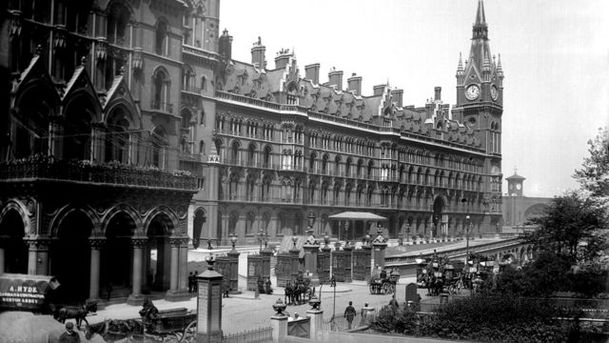
In Our Time - The City - a history, part 2
Melvyn Bragg presents the second of a two-part discussion about the history of the city.
Details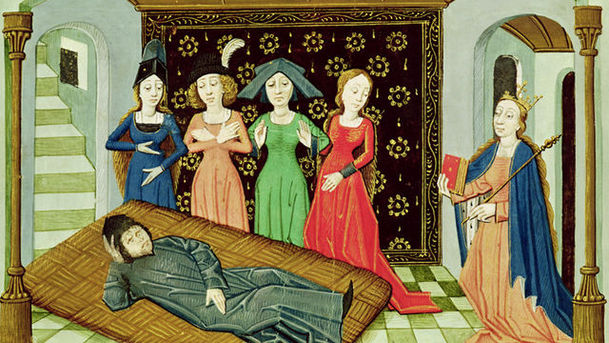
In Our Time - The Consolations of Philosophy
Melvyn Bragg discusses Boethius’ Consolation of Philosophy and asks whether philosophy should lead us toward consolation or lead us from it.
Details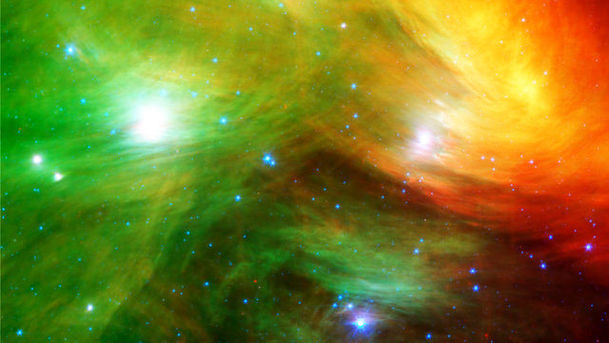
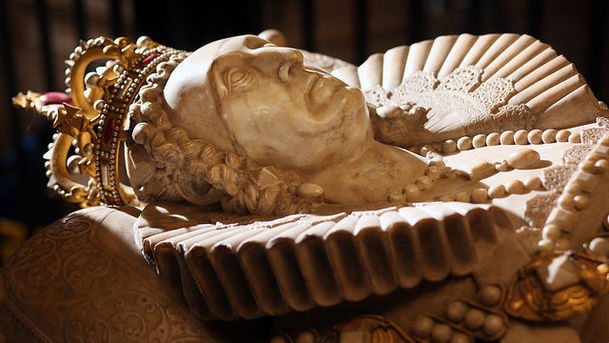
In Our Time - The Death of Elizabeth I
Melvyn Bragg and guests discuss the death of Queen Elizabeth I and its immediate impact, as a foreign monarch became King in the face of plots and plague.
Details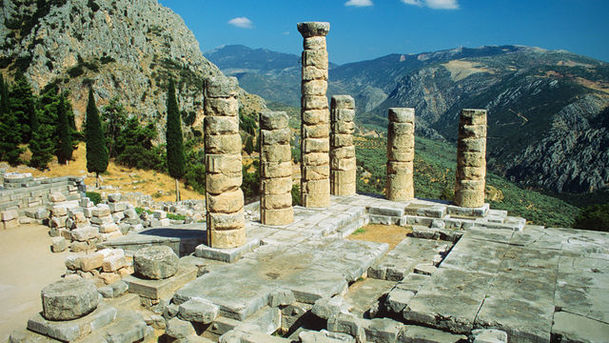
In Our Time - The Delphic Oracle
Melvyn Bragg and his guests discuss the Delphic Oracle, the most important and best documented source of prophecies in the ancient world.
Details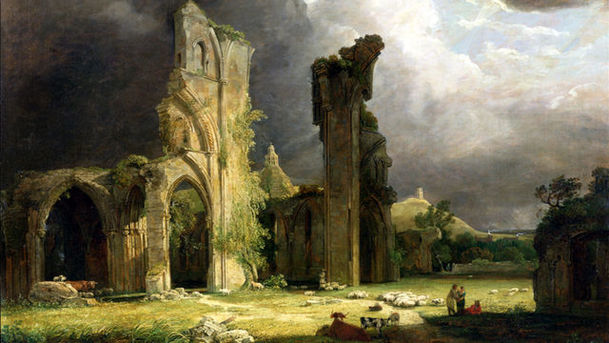
In Our Time - The Dissolution of the Monasteries
Melvyn Bragg and guests discuss Henry VIII and the Dissolution of the Monasteries. Was Henry’s policy an act of grand larceny or the pious destruction of a corrupt institution?
Details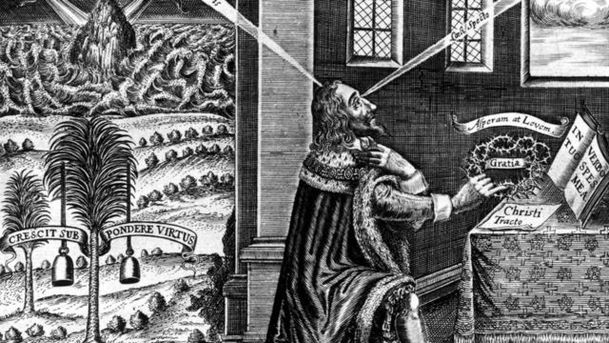
In Our Time - The Divine Right of Kings
Melvyn Bragg and guests discuss the Divine Right of Kings. The idea that kingly authority derives from God alone bit deep into the culture of 17th century Britain.
Details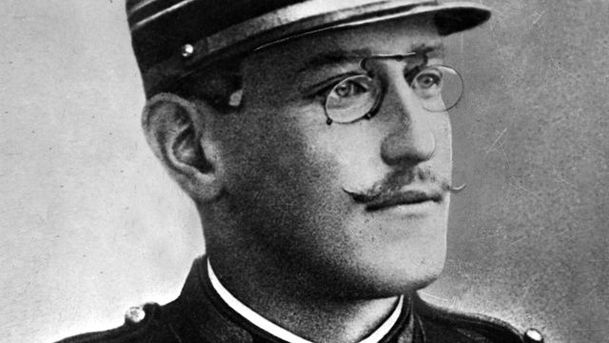
In Our Time - The Dreyfus Affair
Melvyn Bragg and guests discuss the Dreyfus Affair, which tore France apart in the 1890s after a Jewish Army officer was wrongly convicted of spying and sent to Devil's Island.
Details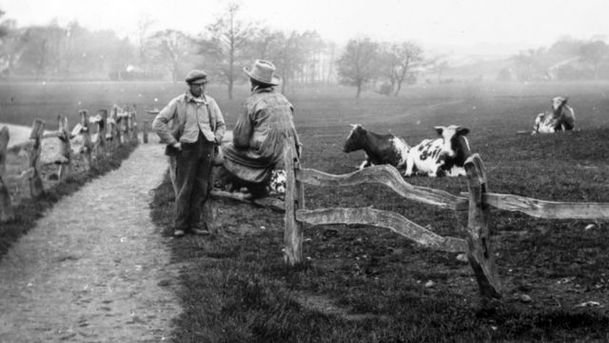
In Our Time - The Enclosures of the 18th Century
Melvyn Bragg and guests discuss the 18th and 19th century enclosure movement which divided the British countryside both literally and figuratively.
Details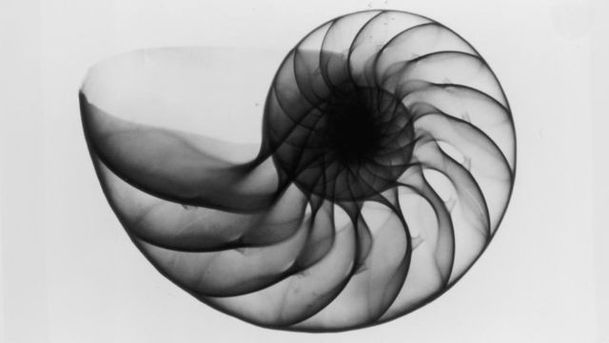
In Our Time - The Fibonacci Sequence
Melvyn Bragg and guests discuss the Fibonacci Sequence, an infinite string of numbers to be found in Renaissance paintings, modern architecture and the structure of flowers.
Details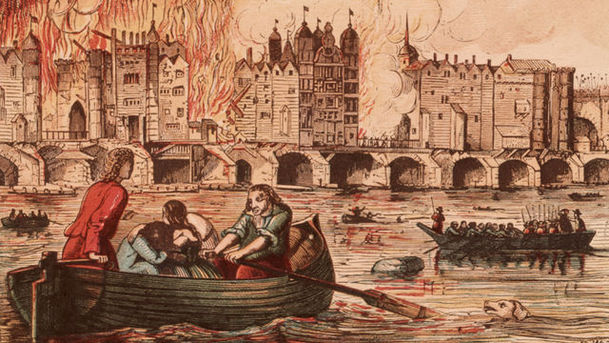
In Our Time - The Fire of London
Melvyn Bragg and guests discuss The Great Fire of London in 1666 and how the city rose from the ashes.
Details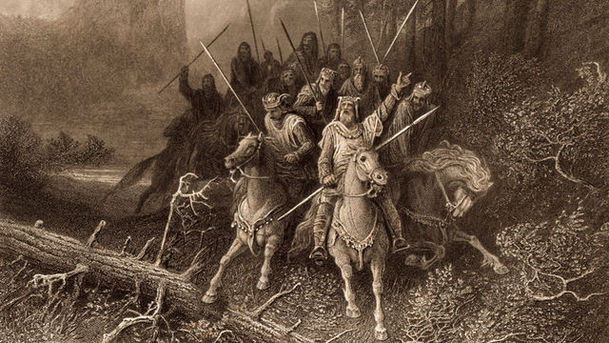
In Our Time - The Fisher King
Melvyn Bragg and guests will be delving into the world of medieval myth and legend in pursuit of the powerful and enigmatic Fisher King.
Details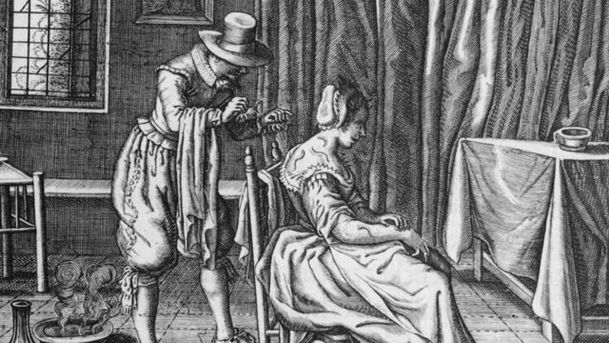
In Our Time - The Four Humours
Melvyn Bragg discusses the four humours, a medical theory that saw the body as a concoction of four essential juices.
Details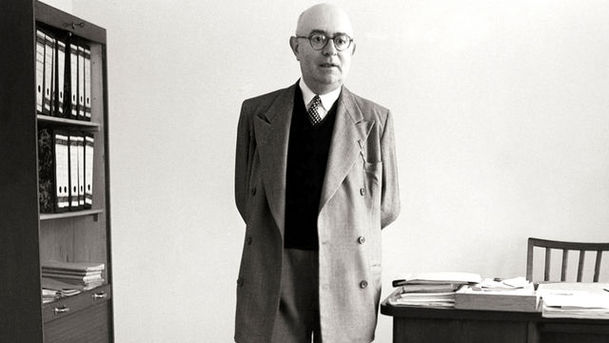
In Our Time - The Frankfurt School
Melvyn Bragg and guests discuss the Frankfurt School, a group of influential German thinkers who argued that culture keeps people passive.
Details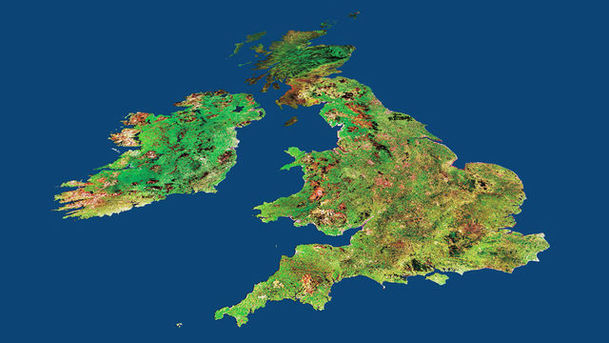
In Our Time - The Geological Formation of Britain
Melvyn Bragg and guests discuss the geological formation of Britain, tracing how its pieces came together on their journey north from the Antarctic Circle.
Details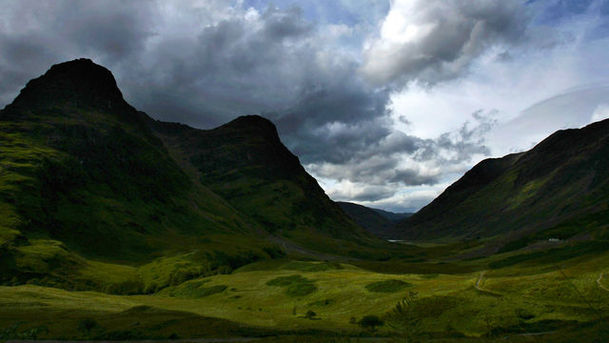
In Our Time - The Glencoe Massacre
Melvyn Bragg and guests Karin Bowie, Murray Pittock and Daniel Szechi discuss the 1692 Glencoe Massacre, why it happened, and its lasting repercussions.
Details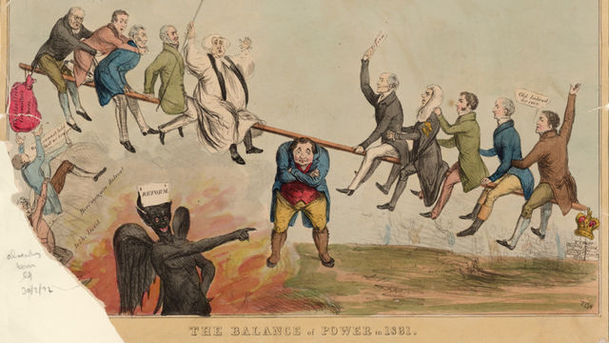
In Our Time - The Great Reform Act
Melvyn Bragg and guests discuss the Great Reform Act of 1832, a landmark in British political history.
Details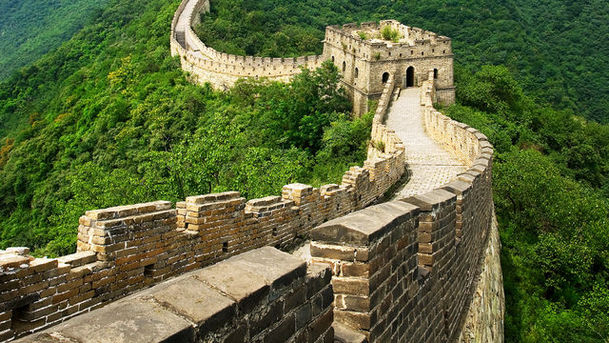
In Our Time - The Great Wall of China
Melvyn Bragg and guests Julia Lovell, Rana Mitter and Frances Wood discuss The Great Wall of China.
Details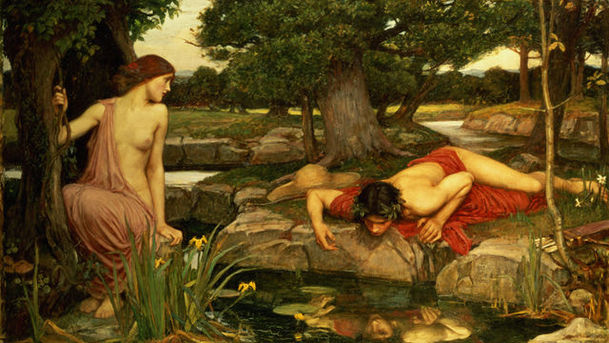
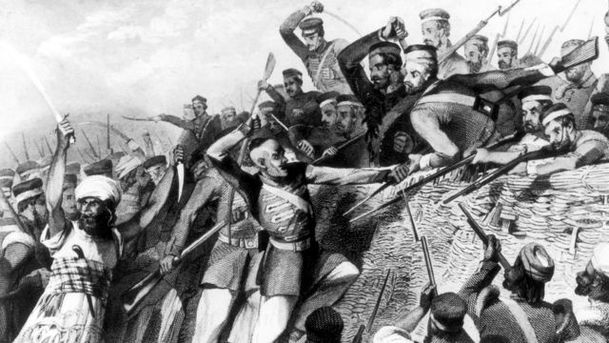
In Our Time - The Indian Mutiny
Melvyn Bragg and guests Faisal Devji, Shruti Kapila and Chandrika Kaul discuss the Indian Mutiny of 1857 and the rebellion which followed.
Details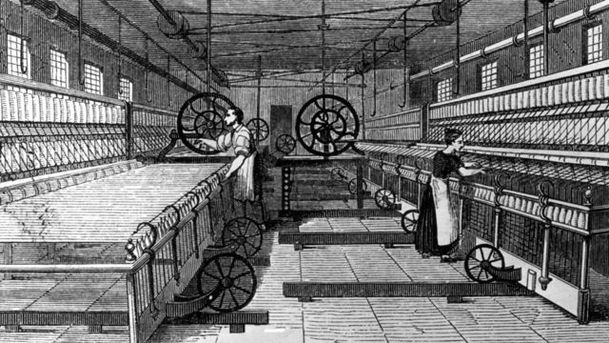
In Our Time - The Industrial Revolution
Melvyn Bragg and his guests discuss the Industrial Revolution, a period of rapid technological development which brought widespread social and intellectual change to Britain.
Details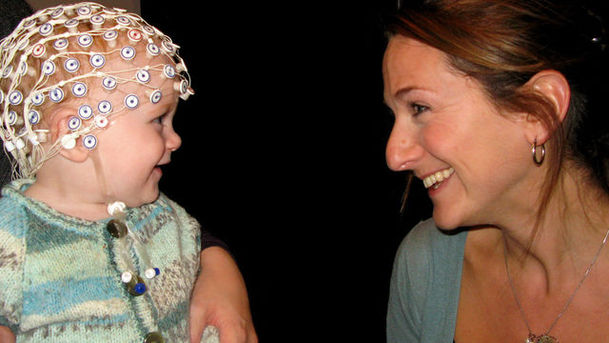
In Our Time - The Infant Brain
Melvyn Bragg and guests Usha Goswami, Annette Karmiloff-Smith and Denis Mareschal discuss what new research reveals about the infant brain.
Details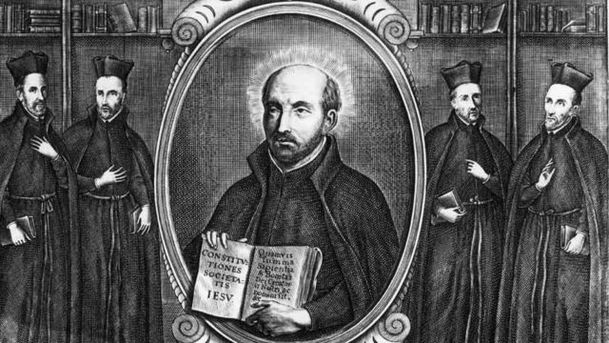
In Our Time - The Jesuits
Melvyn Bragg discusses the Jesuits and their role in the education, art, politics and mythology of the Counter-Reformation.
Details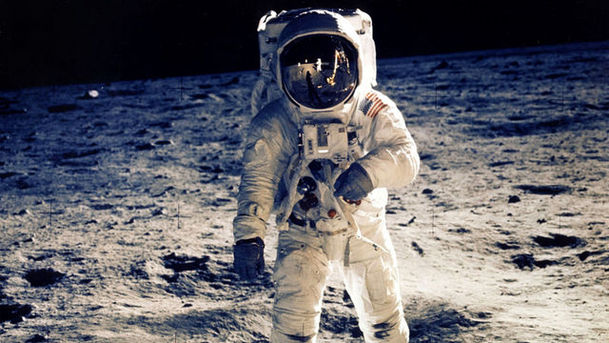
In Our Time - The Laws of Motion
Melvyn Bragg and guests discuss Isaac Newton’s Laws of Motion – three sentences that explain the movements of everything from planets to ping pong balls.
Details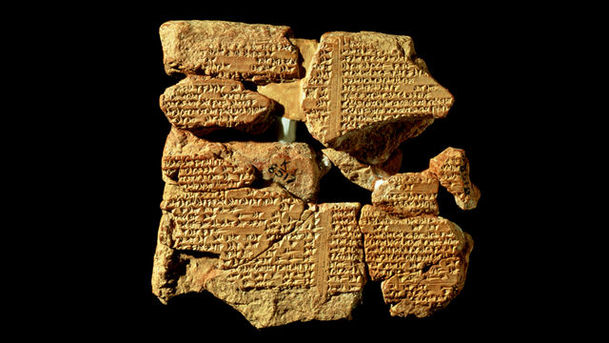
In Our Time - The Library at Nineveh
Melvyn Bragg discusses one of the greatest archaeological finds ever discovered – the Assyrian Library at Nineveh.
Details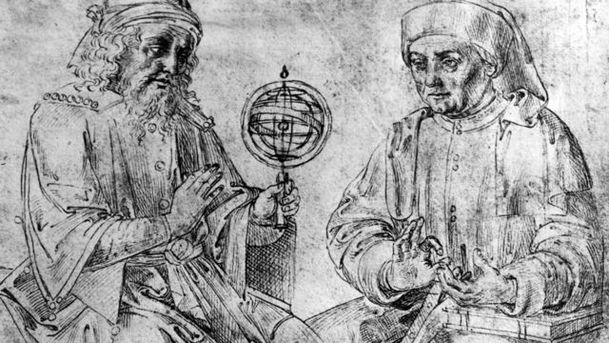
In Our Time - The Library of Alexandria
Melvyn Bragg and guests Simon Goldhill, Serafina Cuomo and Matthew Nichols discuss the Library of Alexandria, one of the greatest libraries in history.
Details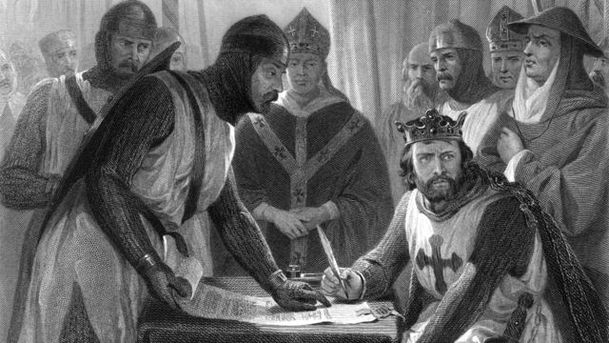
In Our Time - The Magna Carta
Melvyn Bragg and guests discuss the Magna Carta, the charter issued by King John in 1215 that is often seen as the basis of English liberties.
Details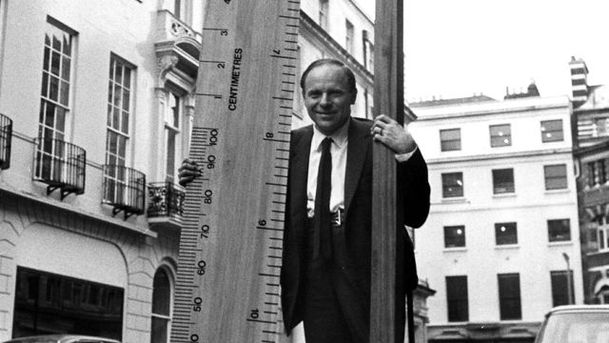
In Our Time - The Measurement Problem in Physics
Melvyn Bragg and guests discuss the the measurement problem, one of the deepest problems in contemporary physics.
Details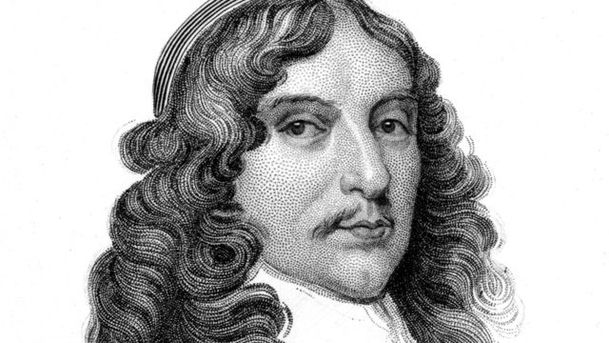
In Our Time - The Metaphysical Poets
Melvyn Bragg discusses the Metaphysical poets John Donne, Andrew Marvell and George Herbert, examining their rich and strange metaphors of sex, death and love.
Details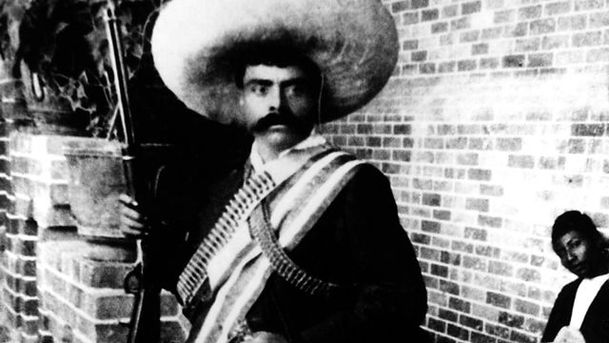
In Our Time - The Mexican Revolution
Melvyn Bragg and his guests discuss the Mexican Revolution of 1910, the popular uprising which lasted ten years and resulted in the overthrow of President Porfino Diaz.
Details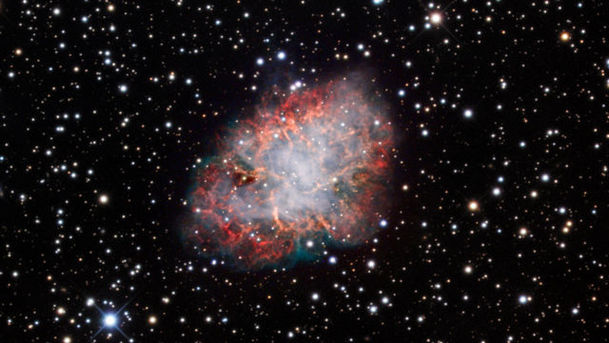
In Our Time - The Multiverse
Melvyn Bragg and guests will be leaving the studio, the planet and indeed, the universe to take a tour of the Multiverse
Details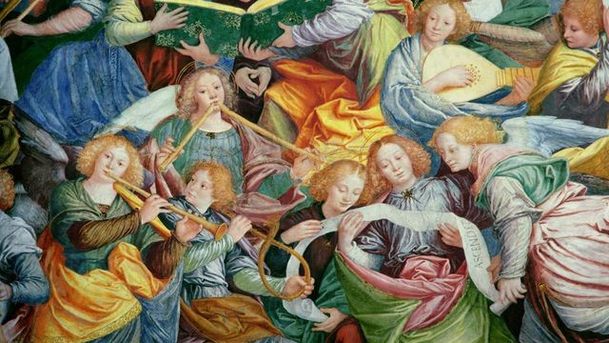
In Our Time - The Music of the Spheres
Melvyn Bragg and guests discuss the music of the spheres, the idea that the revolution of the planets generates a celestial harmony of profound beauty
Details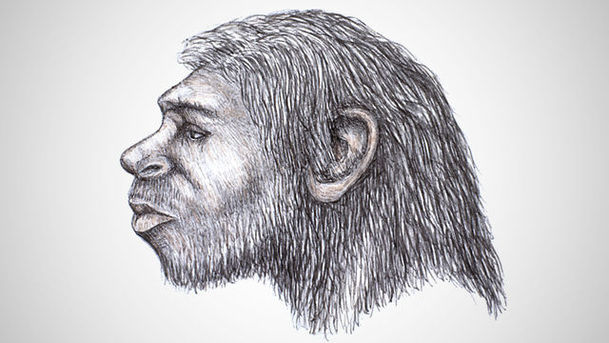
In Our Time - The Neanderthals
Melvyn Bragg and guests discuss the Neanderthals: who they were, how they lived, and how we are related to them.
Details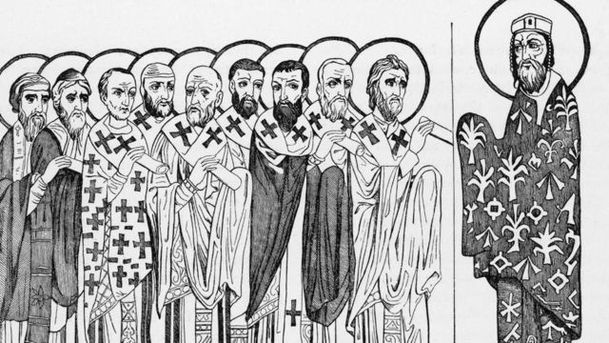
In Our Time - The Nicene Creed
Melvyn Bragg discusses the Nicene Creed, a statement of essential faith that established the Divinity of Christ and has been spoken for over 1600 years in Catholic, Orthodox and Protestant Churches
Details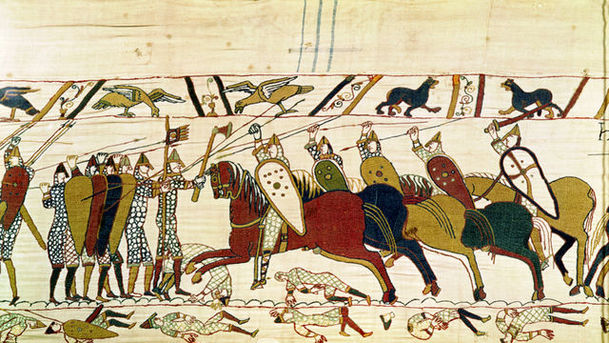
In Our Time - The Norman Yoke
Melvyn Bragg and guests discuss ‘the Norman Yoke’ – the idea that the Battle of Hastings sparked years of cruel Norman oppression for the Anglo Saxons.
Details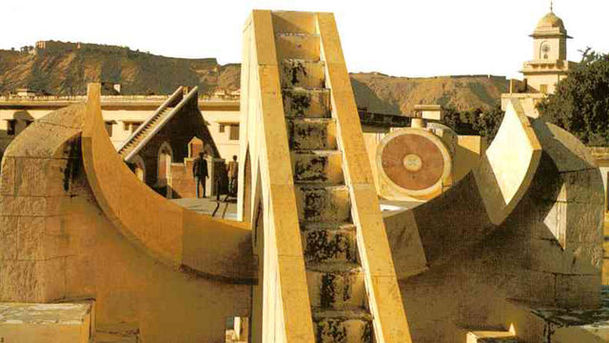
In Our Time - The Observatory at Jaipur
Melvyn Bragg and guests discuss the Observatory in Jaipur, a repository for aeons of Hindu and Islamic intellectual life.
Details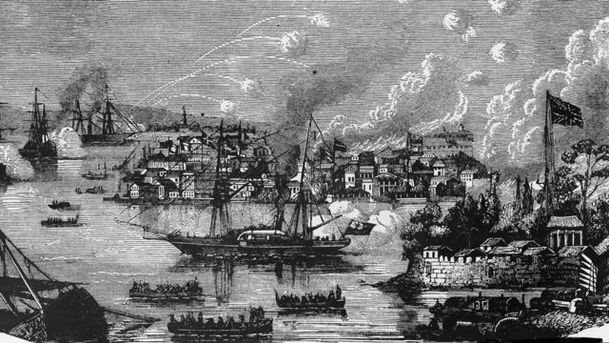
In Our Time - The Opium Wars
Melvyn Bragg discusses the Opium Wars, a series of conflicts in the 19th Century which had a profound effect on British Chinese relations for generations.
Details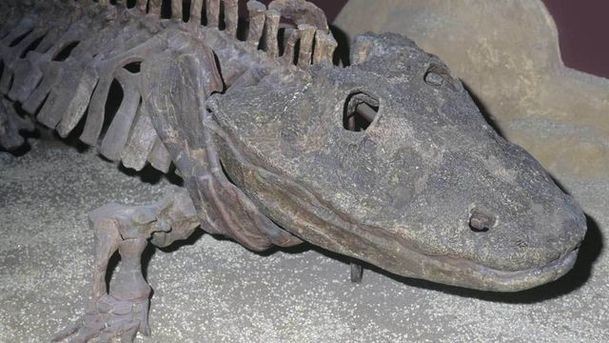
In Our Time - The Permian-Triassic Boundary
Melvyn Bragg and guests discuss the Permian-Triassic boundary and the greatest mass extinction the world has ever known.
Details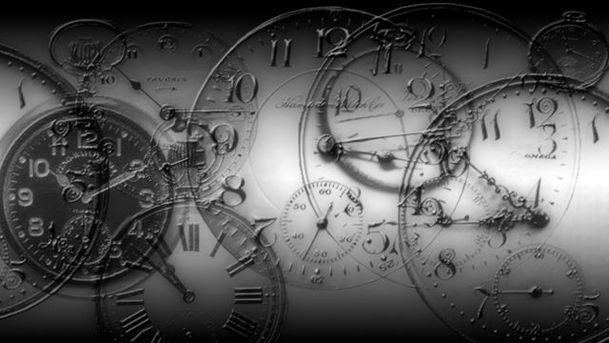
In Our Time - The Physics of Time
Melvyn Bragg and guests discuss the physics of time - what is it and does it even exist?
Details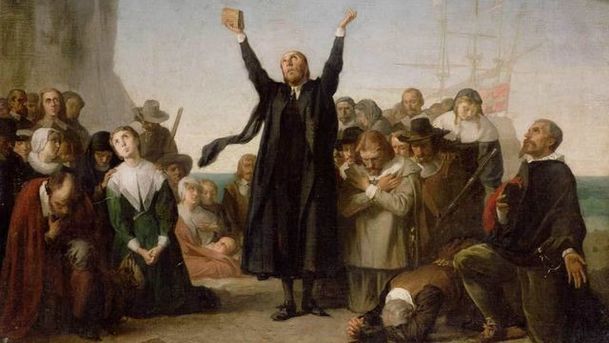
In Our Time - The Pilgrim Fathers
Melvyn Bragg discusses the Pilgrim Fathers and why their 1620 voyage on the Mayflower has become iconic in the American imagination.
Details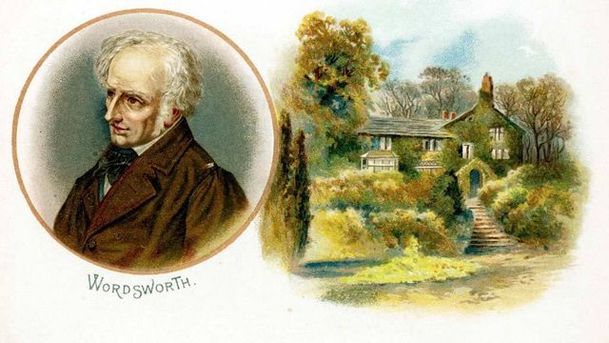
In Our Time - The Prelude
Melvyn Bragg and guests discuss William Wordsworth’s, The Predule, one of the greatest poems in the English language.
Details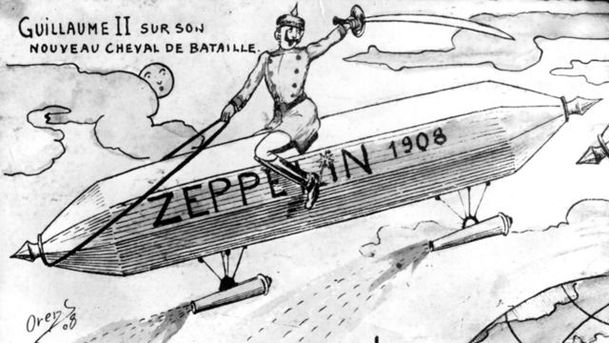
In Our Time - The Riddle of the Sands
Melvyn Bragg discusses the prescient thriller ‘The Riddle of the Sands’ and the decline Anglo-German relations before the First World War.
Details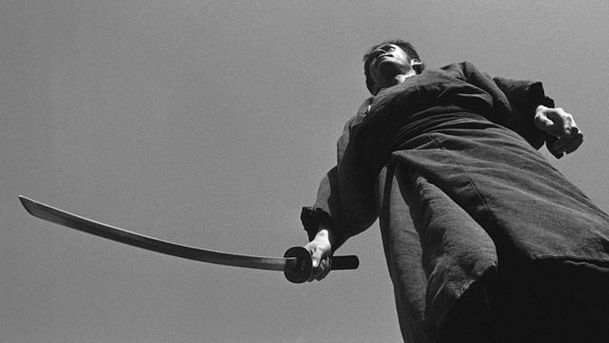
In Our Time - The Samurai
Melvyn Bragg and guests Gregory Irvine, Nicola Liscutin and Angus Lockyer discuss the history of the Samurai and the role of their myth in Japanese national identity.
Details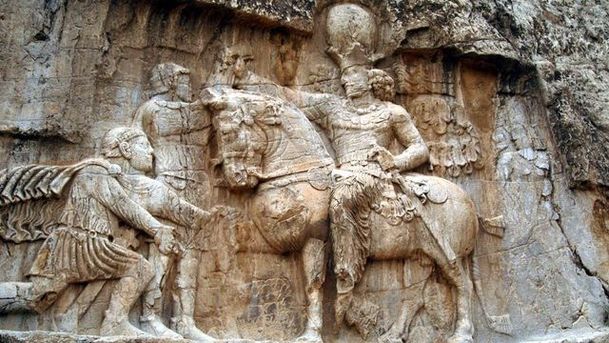
In Our Time - The Sassanid Empire
Melvyn Bragg and guests discuss the Sassanian Empire, a grand imperial rival to the Roman Empire.
Details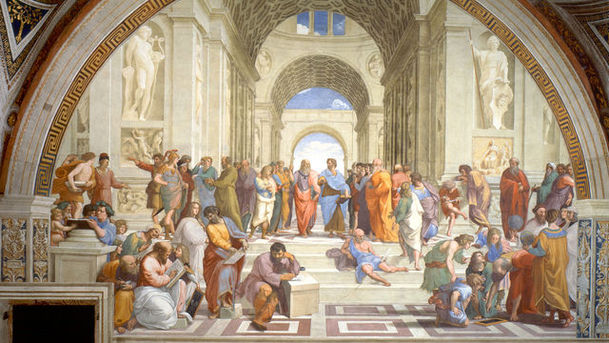
In Our Time - The School of Athens
Melvyn Bragg and guests discuss the Italian Renaissance artist Raphael's depiction of Plato and Aristotle and what it tells us about both the subjects and the painter.
Details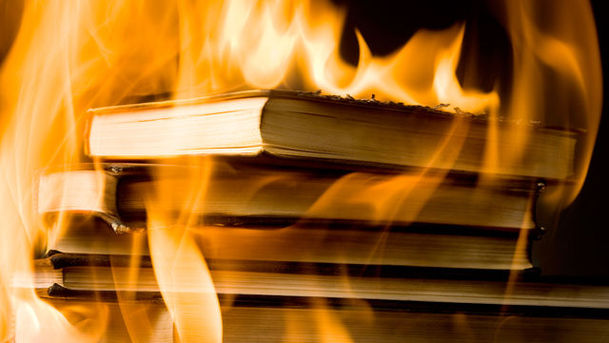
In Our Time - The Siege of Munster
Melvyn Bragg and guests discuss the Siege of Munster in 1534-35, when radical Anabaptists tried to create the 'New Jerusalem' in a small German town, with horrific consequences.
Details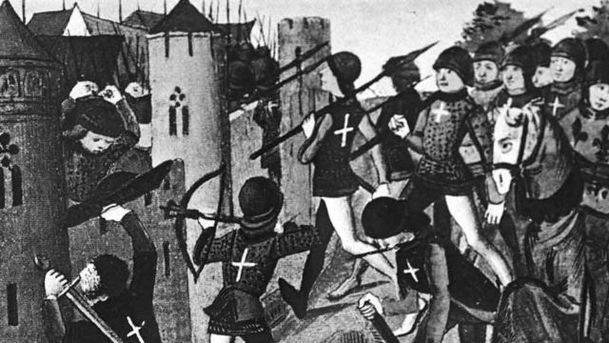
In Our Time - The Siege of Orléans
Melvyn Bragg and guests discuss the Siege of Orléans, when Joan of Arc came to the rescue of France and routed the English army with the help of God.
Details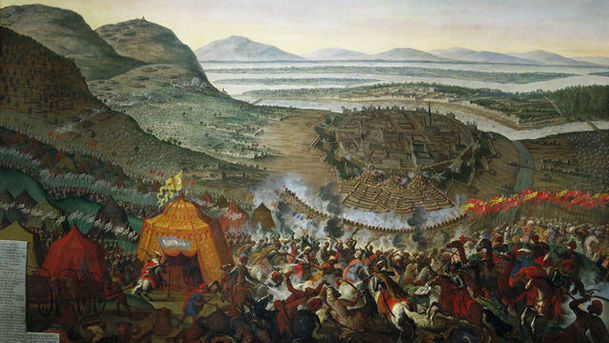
In Our Time - The Siege of Vienna
Melvyn Bragg and guests discuss the 1683 siege of Vienna by the Ottoman Army. The ensuing tale of blood and drama helped define the boundaries of Europe.
Details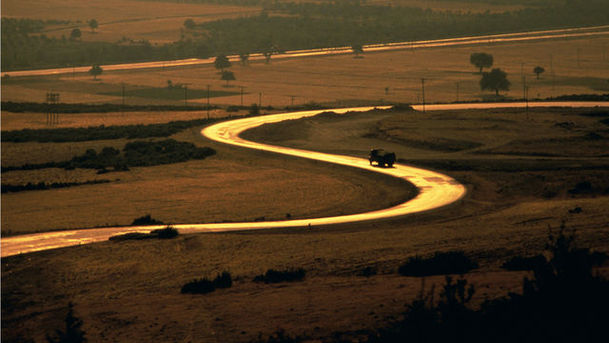
In Our Time - The Silk Road
Melvyn Bragg and guests discuss the Silk Road, the trade routes which spanned Asia for over a thousand years, carrying Buddhism to China and paper-making and gunpowder westwards.
Details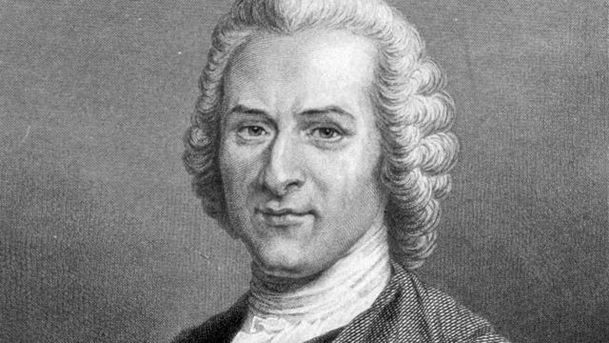
In Our Time - The Social Contract
Melvyn Bragg and guests discuss the Social Contract. A key idea in political philosophy, it states that political authority is held through a contract with those to be ruled.
Details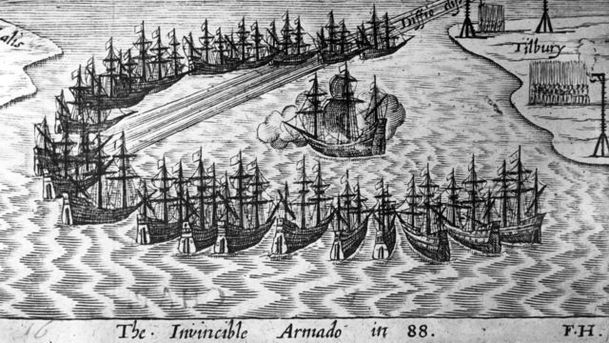
In Our Time - The Spanish Armada
Melvyn Bragg and his guests discuss the Spanish Armada, the fleet which attempted to invade Elizabethan England in 1588.
Details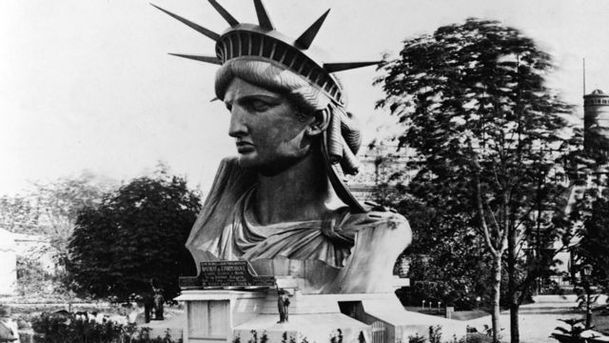
In Our Time - The Statue of Liberty
Melvyn Bragg and guests discuss the Statue of Liberty, given by France to America as a token of revolutionary kinship.
Details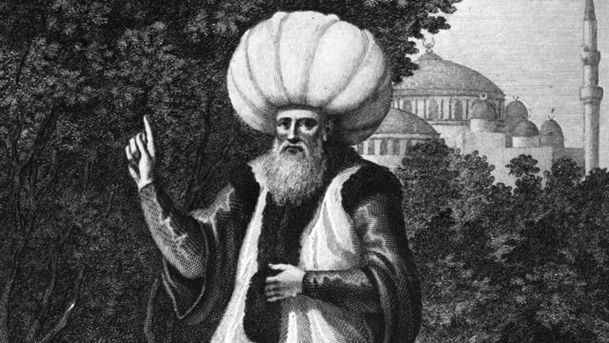
In Our Time - The Translation Movement
Melvyn Bragg and guests discuss the movement of classical Greek ideas out of the Byzantine Empire and into the Islamic world from the 9th century onwards.
Details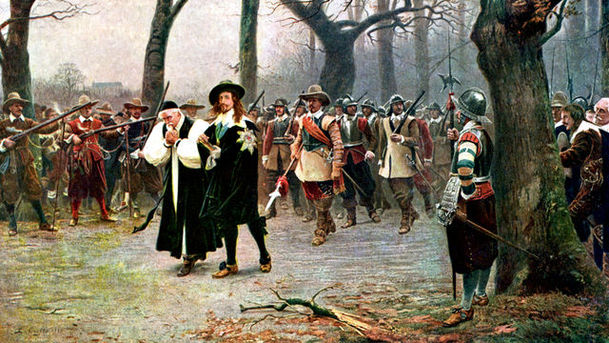
In Our Time - The Trial of Charles I
Melvyn Bragg and guests discuss the trial of Charles I, recounting the high drama in Westminster Hall and the ideas that led to the execution.
Details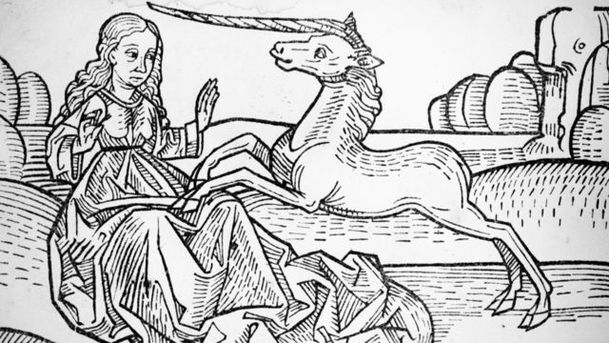
In Our Time - The Unicorn
Melvyn Bragg and his guests discuss the history and mythology of the unicorn.
Details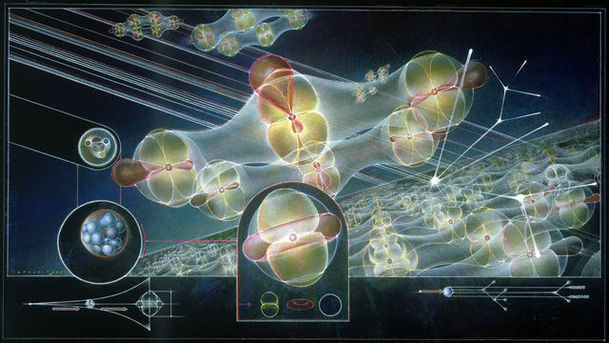
In Our Time - The Vacuum of Space
Melvyn Bragg and guests discuss the Vacuum of Space, from the innards of the atom to the outer reaches of space.
Details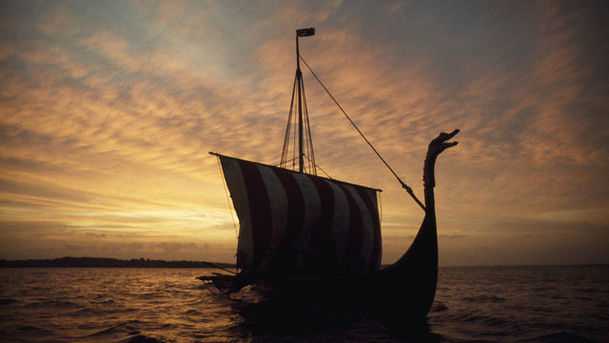
In Our Time - The Volga Vikings
Melvyn Bragg and his guests discuss the Volga Vikings, a group of Norsemen who travelled to Russia and set up settlements there during the 8th and 9th centuries AD.
Details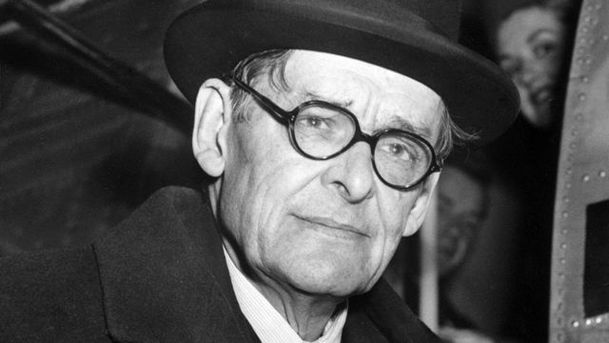
In Our Time - The Wasteland and Modernity
Melvyn Bragg and guests discuss T.S. Eliot's seminal poem 'The Wasteland', one of the most influential poems ever written in English.
Details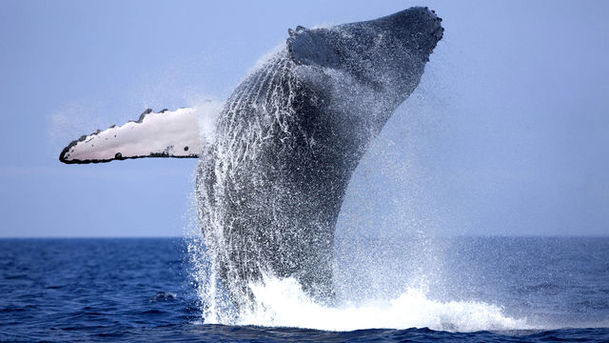
In Our Time - The Whale - A History
Melvyn Bragg and guests discuss the evolutionary history of the whale, examining how this leviathan of the deep evolved from a small land-based mammal with cloven hoofs.
Details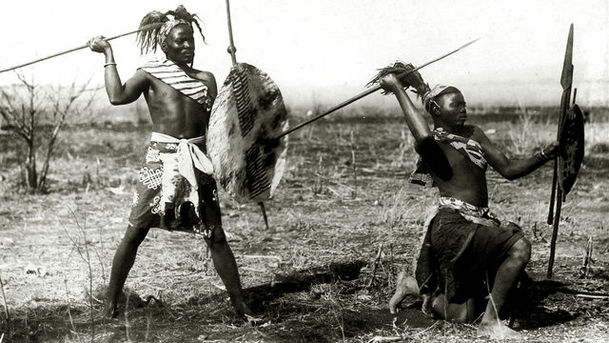
In Our Time - The Zulu Nation's Rise and Fall
Melvyn Bragg and guests Saul David, Shula Marks and Saul Dubow discuss the rise and fall of the Zulu Nation.
Details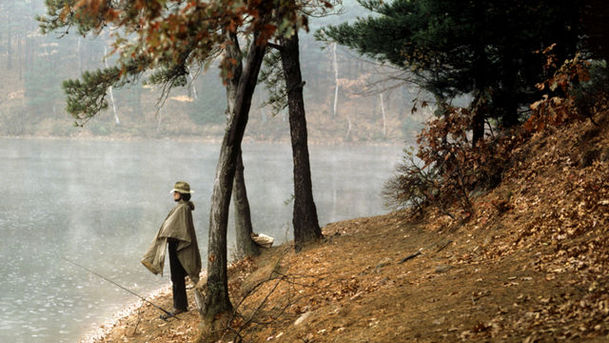
In Our Time - Thoreau and the American Idyll
Melvyn Bragg and guests discuss the American 19th century writer and philosopher, Henry David Thoreau
Details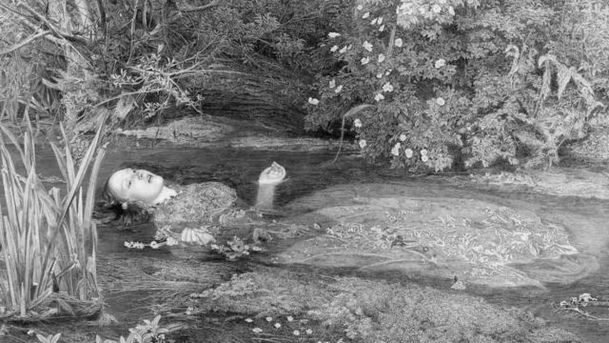
In Our Time - Victorian Pessimism
Melvyn Bragg and guests discuss Victorian Pessimism, from Matthew Arnold’s poem Dover Beach to the malign universe of Thomas Hardy’s novels.
Details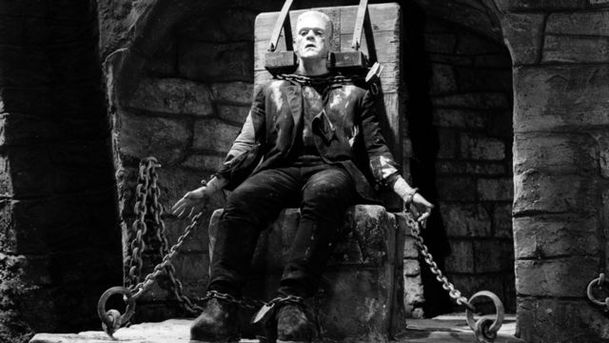
In Our Time - Vitalism
Melvyn Bragg and guests discuss Vitalism, an 18th and 19th century quest for the spark of life and the science behind Frankenstein.
Details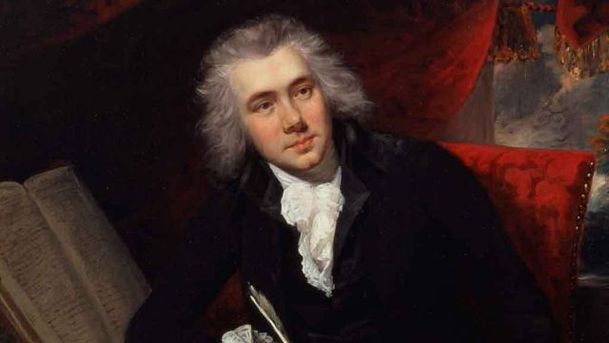
In Our Time - Wilberforce
In an unusual edition of In Our Time, marking the 1807 Abolition of the Slave Trade, Melvyn Bragg leaves the studio to examine the life of William Wilberforce.
Details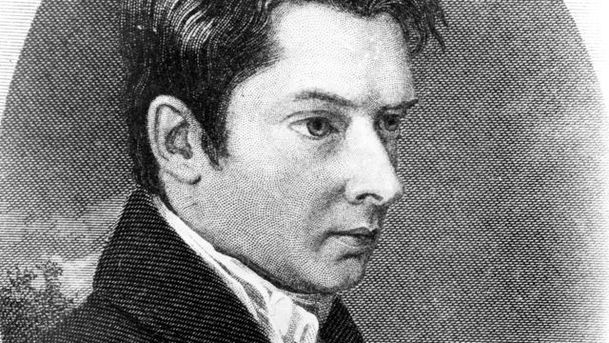
In Our Time - William Hazlitt
Melvyn Bragg and guests Jonathan Bate, Uttara Natarajan and AC Grayling discuss the life and works of William Hazlitt.
Details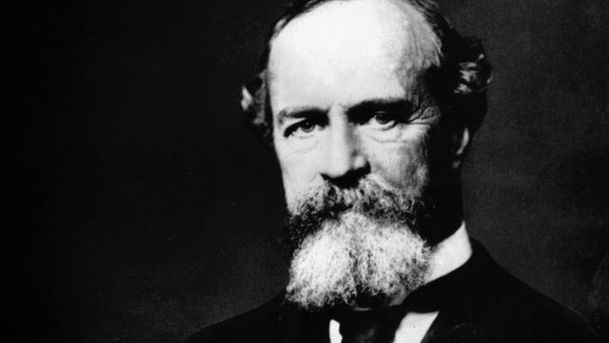
In Our Time - William James's 'The Varieties of Religious Experience'
Melvyn Bragg and guests Jonathan Ree, John Haldane and Gwen Griffith-Dickson discuss The Varieties of Religious Experience by William James.
Details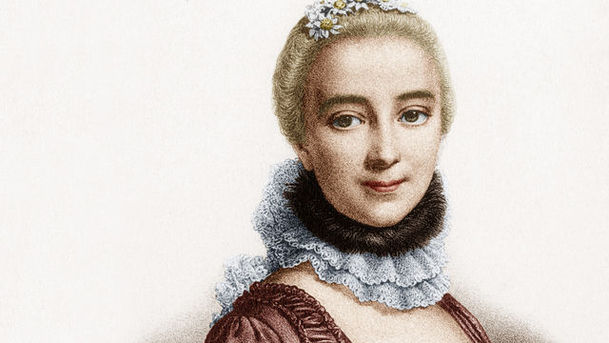
In Our Time - Women and Enlightenment Science
Melvyn Bragg and his guests discuss the role played by women in Enlightenment science.
Details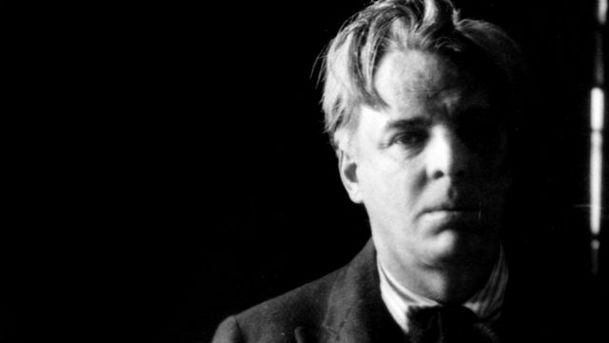
In Our Time - Yeats and Irish Politics
Melvyn Bragg and guests discuss the poet W.B. Yeats and Irish politics from the suspension of home rule to the division of Ireland.
Details